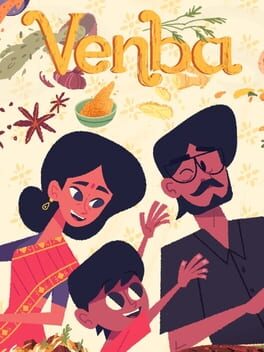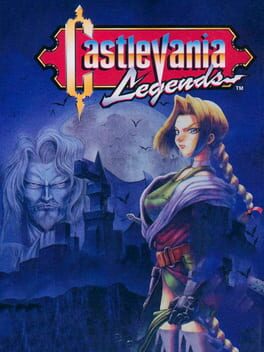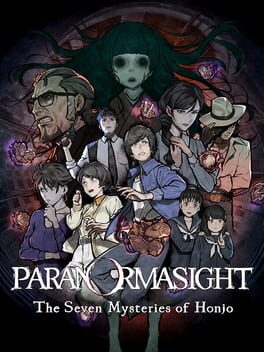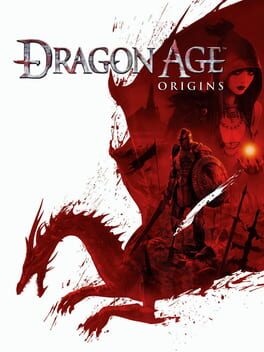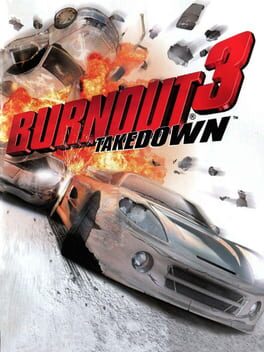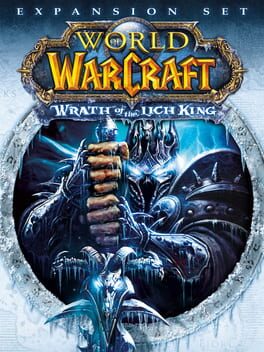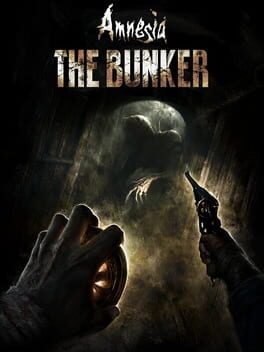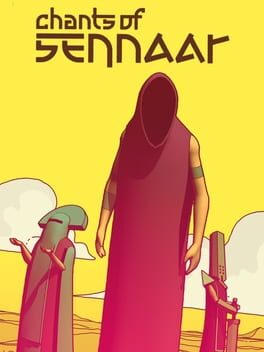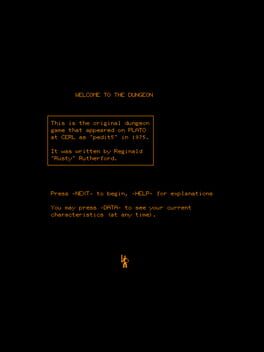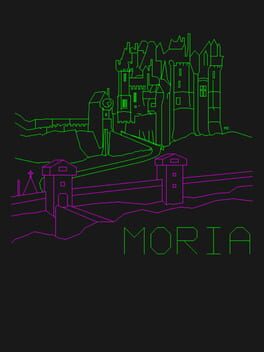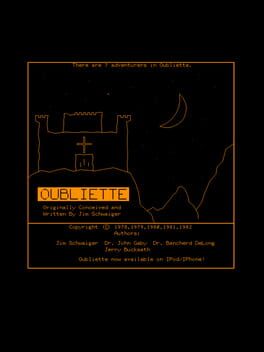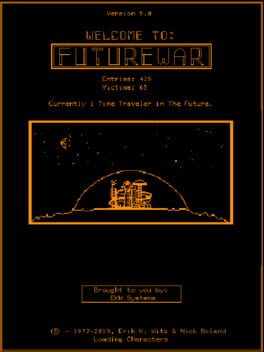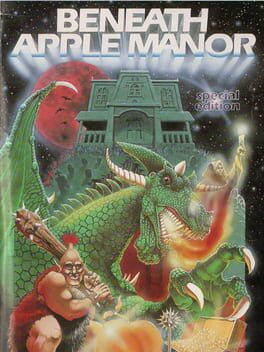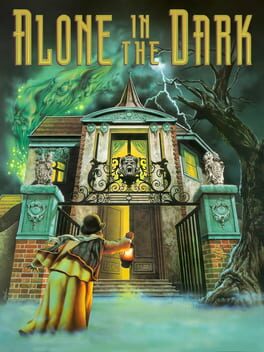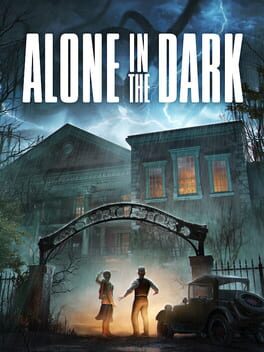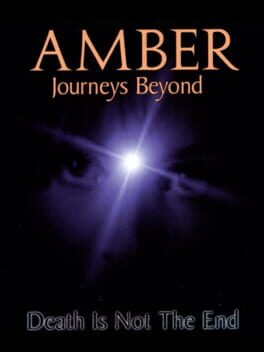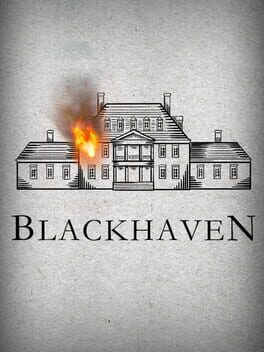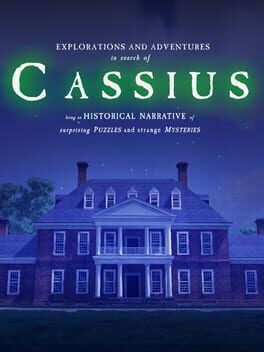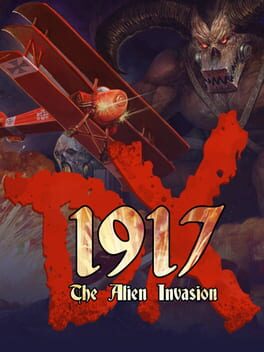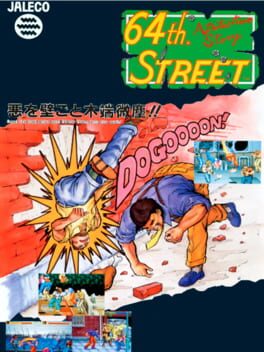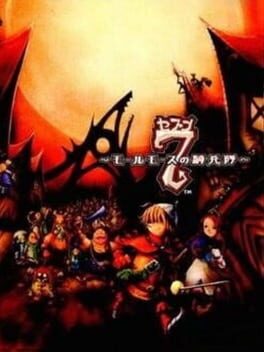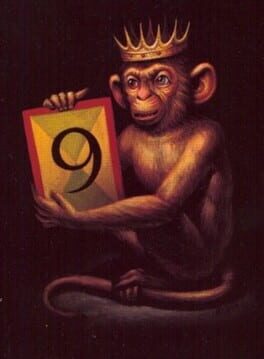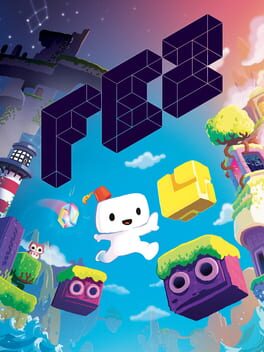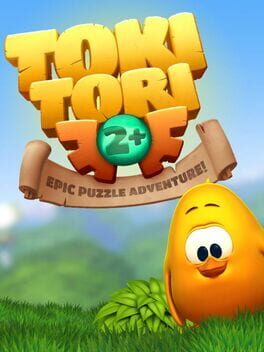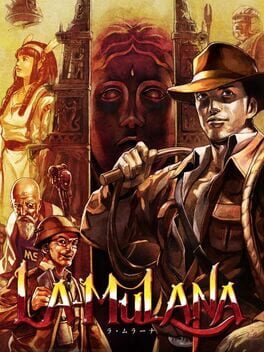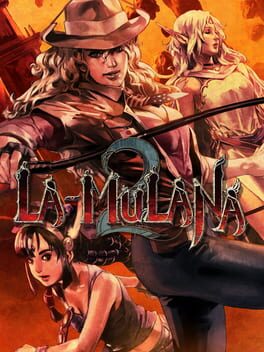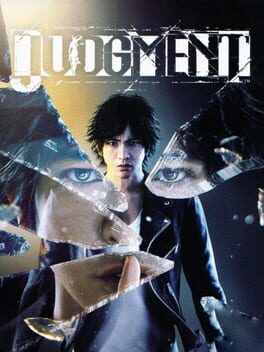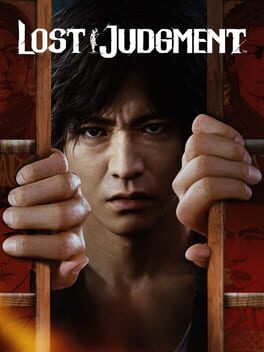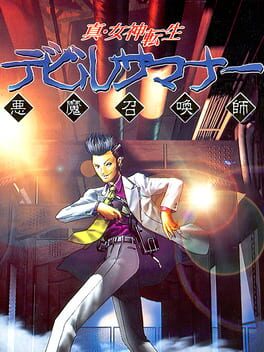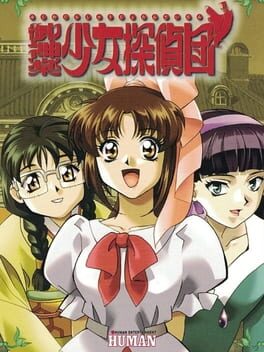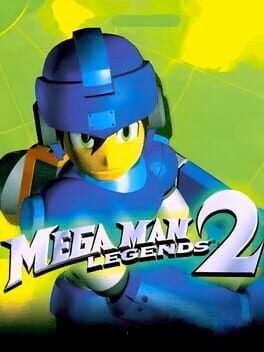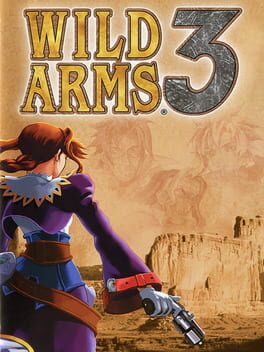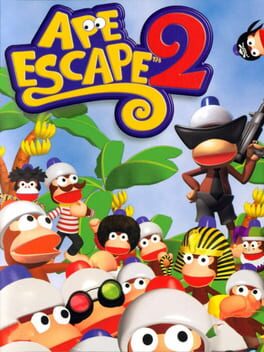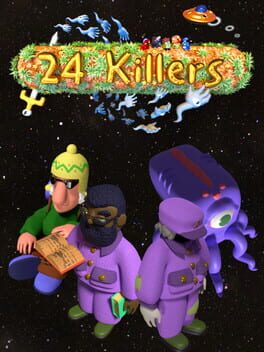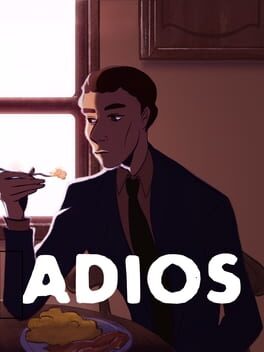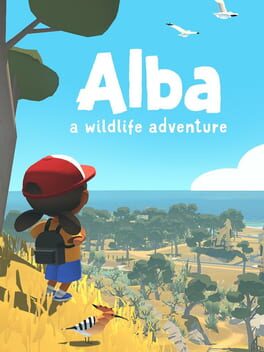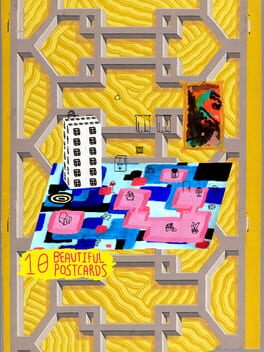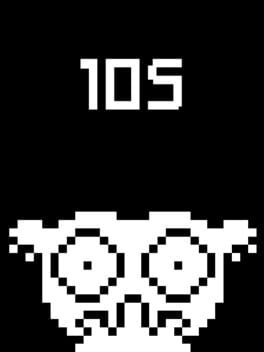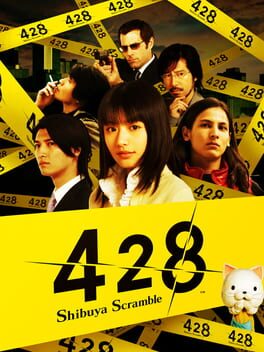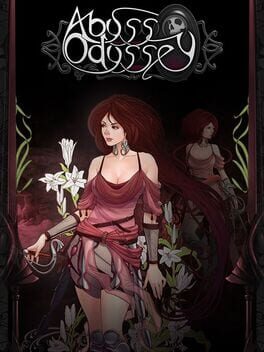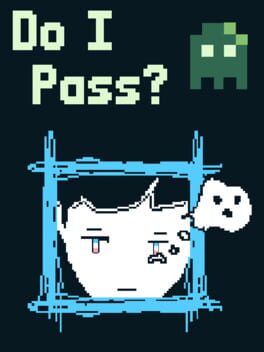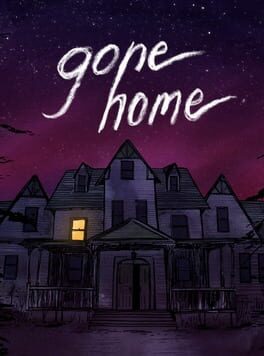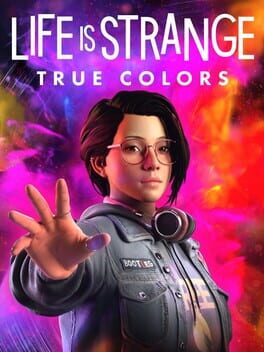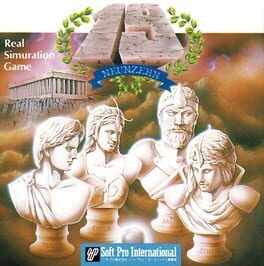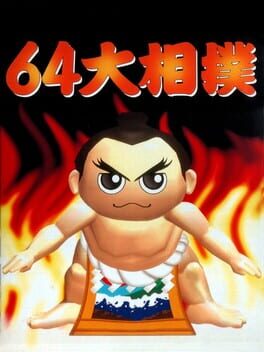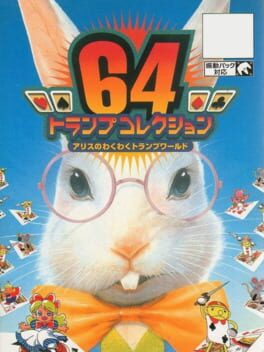Cadensia
BACKER
223 reviews liked by Cadensia
Venba
2023
Most of the conversation I’ve seen around Venba has revolved around the story of the entire family the game is about, but centered on the point of view of Kavin, the child. A second generation immigrant, Kavin experiences the social pressures of otherness growing up and we see this expressed through his own insecurities with his situation and his attempts to fit in throughout his life as well as via the way his mother Venba vents her frustrations with how she feels he’s rejecting his culture and his family, with his dad Paavalankind of caught in an empathetic middle ground. I get why this happens – I think a lot of the people who like, actually play the game are more likely to identify with Kavin, and the game shifts more focally to his perspective in the back half, and he’s admittedly something of a reflection of the lived experiences of the game’s lead designer, whose life the game is heavily drawn upon. And I don’t want to downplay Kavin’s experience; obviously modern second gen kids’ relationships with their parents are stories that a lot of people connect strongly to – it’s a really common thing in my generation. But when I was playing the game I couldn’t help but find myself so much more drawn to Venba herself.
My wife is from India, and while it seems kind of funny in hindsight there was in fact a lot of hubbub when we first got together. We were dating in secret for a long time because there was sure to be controversy over my whiteness and my religion. When we got found out it was a little longer before I was allowed to meet her parents and then a lot longer before I felt like, actually accepted, which is fair. Things were very different from how they were expecting things to go, even if my wife herself never really planned to adhere to these expectations. I always thought her mom HATED me though, even after the CONTROVERSY of our relationship cooled off. She was so quiet around me, so distant, and I never knew how to talk to her. But it turned out she also felt that way about me. Insecure and weird about this stranger that she felt like she had zero common ground with.
Eventually we bonded over two things: our mutual love of roasting the shit out of my wife and my sincere appreciation for her cooking. She’s got this deep well of recipes and they’re all so fuckin good dude but neither of her kids have any real interest in cooking like at all, even before my wife became too disabled for that to be something she could realistically do, so I think she took some genuine pleasure from it when I started asking persistently for her to teach me how to make some of her stuff when we would visit each other, and now I have a pretty good stock of family recipes that’s still steadily growing, with my wife and mother-in-law’s seal of approval. (In fact I would say that if you have a working knowledge of how to cook most basic Indian foods then most of the puzzle elements of Venba will be essentially negated because it doesn’t matter whether you’re in Tamil Nadu or West Bengal, a masala is a masala and a biryani is a biryani and a dosa is a dosa). But I’ve also spent a lot of time with her now over the years, doing this stuff, and a pretty good amount of time with her alone, and you start to know people, and I see so much of her in Venba.
A woman who moves about as far away from her life, her home, her family as it is possible to move, unwillingly, as a matter of practicality, Venba never quite assimilates. A qualified, highly educated worker in her home country arbitrarily unable to find work in her new one for racist reasons, relying on a stressed partner to make ends meet while she handles domestic duties and isolates herself, partially because her new society rejects her and partially because she rejects it. “I have Paavalan,” she says at one point. “I have Kavin.” There are all kinds of reasons why and they might even create a twisted ouroboros sometimes but ultimately Venba just doesn’t like it in Canada, and she did like it in India, and if she had her way she would probably just like, go home. It hurts her to be apart from her parents when they get old and get sick. It hurts her to see her son so easily slip into this culture she feels embittered towards and treat her like part of the embarrassing thing to leave behind.
I think my mother in law feels that way a lot of the time, especially since both of her children have left the nest, although this is where her experience diverges from Venba’s. My wife and her brother are very close to their mom, and I think that’s part of what anchors her here, despite everything. They don’t have the contentious relationship that Venba and Kavin have that gives Venba kind of a freedom to return to where she’s happy, or to necessitate the reunion and reconciliation that they loosely share in the final chapter. ac
While my secondhand experience with a life that Venba so strongly evokes in my mind’s eye does make me feel a little frustrated at how cleanly this game resolves its lingering conflicts by the end of it all, I don’t think it falls into the trap of, as a friend of mine wisely phrased it yesterday, “barren sentimentality” that I think even well-meaning games often fall into when they try to tackle real subject matter. Venba may be a short game whose focus on food and small scope limits the windows into these lives that we’re allowed to peer into, but its dialogue is often cutting, it knows when not to pull punches, and it says a lot without words.
The writing is uniformly excellent but I think the best stuff is consistently the way the game communicates without words. The way Kavin’s letters unfold more slowly across his word balloons when he speaks Tamil vs when his parents do or when he’s speaking English for most of the game because he’s less comfortable with the language; the way that the last time you play as Venba there’s minimal interactivity because at this point in her life she’s memorized her recipes and developed her own techniques and using newer equipment for the most part, so there are no puzzles to solve and all the game asks from the player is a couple of button presses or stick rotations; the way that when you’re playing as Kavin he just kind of drops or tosses ingredient containers gracelessly back onto the counter vs the way Venba would put them back down like a normal person. There’s a moment where you’re texting and the game is auto-advancing the conversation but once you’re given the freedom to exit the conversation you can actually scroll up and see the entire thing again, including the beginning chunk of it that you weren’t originally shown and it is as horrible as you would imagine. Venba is such a short game and its vignettes are necessarily so focused that this intimate attention to detail makes a huge difference in the texture of the world.
Applicability is very real, I suppose. On its face Venba is an incredibly generic immigrant story, with only the food angle making it stand out narratively, but even then it isn’t even the only “wholesome indie game about a second generation immigrant trying to reconnect somehow to a parent via family recipes” that I know of off the top of my head. We all know people who have lived the broad details of this family’s story. But the particular voices that come out of their mouths are bold and articulate and human. Enough for it to evoke specific traumas in my wife, who loved this game, enough to make me wistful about my relationship with her mother, which is occasionally complicated. And I know other people who have felt similarly. It’s easy for me to imagine a lesser version of this game and I’m glad I don’t have to talk about that one haha.
As I write this we’re four days into a six day visit from my wife’s dad, whom I often struggle to get along with, and who doesn’t know that I’m transgender, and her brother, who is cool but who left early this afternoon. Today has been the first time we’ve had a break from work or being around them constantly since they arrived. It’s been a long and stressful week, but getting a couple hours to play through this game was in turns relaxing and sad and fun and cathartic. And we’re about to go out to eat at a South Indian restaurant with her dad, which was a happy coincidence that we’ve had planned for a couple of weeks. I think we’re gonna go ham on some dosas. Maybe try not to cry about Venba while we do.
My wife is from India, and while it seems kind of funny in hindsight there was in fact a lot of hubbub when we first got together. We were dating in secret for a long time because there was sure to be controversy over my whiteness and my religion. When we got found out it was a little longer before I was allowed to meet her parents and then a lot longer before I felt like, actually accepted, which is fair. Things were very different from how they were expecting things to go, even if my wife herself never really planned to adhere to these expectations. I always thought her mom HATED me though, even after the CONTROVERSY of our relationship cooled off. She was so quiet around me, so distant, and I never knew how to talk to her. But it turned out she also felt that way about me. Insecure and weird about this stranger that she felt like she had zero common ground with.
Eventually we bonded over two things: our mutual love of roasting the shit out of my wife and my sincere appreciation for her cooking. She’s got this deep well of recipes and they’re all so fuckin good dude but neither of her kids have any real interest in cooking like at all, even before my wife became too disabled for that to be something she could realistically do, so I think she took some genuine pleasure from it when I started asking persistently for her to teach me how to make some of her stuff when we would visit each other, and now I have a pretty good stock of family recipes that’s still steadily growing, with my wife and mother-in-law’s seal of approval. (In fact I would say that if you have a working knowledge of how to cook most basic Indian foods then most of the puzzle elements of Venba will be essentially negated because it doesn’t matter whether you’re in Tamil Nadu or West Bengal, a masala is a masala and a biryani is a biryani and a dosa is a dosa). But I’ve also spent a lot of time with her now over the years, doing this stuff, and a pretty good amount of time with her alone, and you start to know people, and I see so much of her in Venba.
A woman who moves about as far away from her life, her home, her family as it is possible to move, unwillingly, as a matter of practicality, Venba never quite assimilates. A qualified, highly educated worker in her home country arbitrarily unable to find work in her new one for racist reasons, relying on a stressed partner to make ends meet while she handles domestic duties and isolates herself, partially because her new society rejects her and partially because she rejects it. “I have Paavalan,” she says at one point. “I have Kavin.” There are all kinds of reasons why and they might even create a twisted ouroboros sometimes but ultimately Venba just doesn’t like it in Canada, and she did like it in India, and if she had her way she would probably just like, go home. It hurts her to be apart from her parents when they get old and get sick. It hurts her to see her son so easily slip into this culture she feels embittered towards and treat her like part of the embarrassing thing to leave behind.
I think my mother in law feels that way a lot of the time, especially since both of her children have left the nest, although this is where her experience diverges from Venba’s. My wife and her brother are very close to their mom, and I think that’s part of what anchors her here, despite everything. They don’t have the contentious relationship that Venba and Kavin have that gives Venba kind of a freedom to return to where she’s happy, or to necessitate the reunion and reconciliation that they loosely share in the final chapter. ac
While my secondhand experience with a life that Venba so strongly evokes in my mind’s eye does make me feel a little frustrated at how cleanly this game resolves its lingering conflicts by the end of it all, I don’t think it falls into the trap of, as a friend of mine wisely phrased it yesterday, “barren sentimentality” that I think even well-meaning games often fall into when they try to tackle real subject matter. Venba may be a short game whose focus on food and small scope limits the windows into these lives that we’re allowed to peer into, but its dialogue is often cutting, it knows when not to pull punches, and it says a lot without words.
The writing is uniformly excellent but I think the best stuff is consistently the way the game communicates without words. The way Kavin’s letters unfold more slowly across his word balloons when he speaks Tamil vs when his parents do or when he’s speaking English for most of the game because he’s less comfortable with the language; the way that the last time you play as Venba there’s minimal interactivity because at this point in her life she’s memorized her recipes and developed her own techniques and using newer equipment for the most part, so there are no puzzles to solve and all the game asks from the player is a couple of button presses or stick rotations; the way that when you’re playing as Kavin he just kind of drops or tosses ingredient containers gracelessly back onto the counter vs the way Venba would put them back down like a normal person. There’s a moment where you’re texting and the game is auto-advancing the conversation but once you’re given the freedom to exit the conversation you can actually scroll up and see the entire thing again, including the beginning chunk of it that you weren’t originally shown and it is as horrible as you would imagine. Venba is such a short game and its vignettes are necessarily so focused that this intimate attention to detail makes a huge difference in the texture of the world.
Applicability is very real, I suppose. On its face Venba is an incredibly generic immigrant story, with only the food angle making it stand out narratively, but even then it isn’t even the only “wholesome indie game about a second generation immigrant trying to reconnect somehow to a parent via family recipes” that I know of off the top of my head. We all know people who have lived the broad details of this family’s story. But the particular voices that come out of their mouths are bold and articulate and human. Enough for it to evoke specific traumas in my wife, who loved this game, enough to make me wistful about my relationship with her mother, which is occasionally complicated. And I know other people who have felt similarly. It’s easy for me to imagine a lesser version of this game and I’m glad I don’t have to talk about that one haha.
As I write this we’re four days into a six day visit from my wife’s dad, whom I often struggle to get along with, and who doesn’t know that I’m transgender, and her brother, who is cool but who left early this afternoon. Today has been the first time we’ve had a break from work or being around them constantly since they arrived. It’s been a long and stressful week, but getting a couple hours to play through this game was in turns relaxing and sad and fun and cathartic. And we’re about to go out to eat at a South Indian restaurant with her dad, which was a happy coincidence that we’ve had planned for a couple of weeks. I think we’re gonna go ham on some dosas. Maybe try not to cry about Venba while we do.
Castlevania Legends
1997
Castlevania has been kind of nothing but hits for me so far. I’ve found a lot to like in the popular series punching bags like Simon’s Quest, which has become probably a top ten video game for me, and The Adventure, which has become a game I will halfheartedly defend as actually fine when it comes up in casual conversation. Even popular games that I don’t get along with like Super IV and Symphony of the Night are obviously incredibly well done experiences, just ones that don’t rub me the right way. On average though I think Castlevania might have the highest hit rate of any series I’ve played this many entiries in bar like, Final Fantasy where (has not played 16 voice) I think literally every one is very good to great. So I came into Legends with a very open mind. Castlevania has basically never steered me wrong yet, I find myself more positive than average it seems, you get to play as a cool anime girl, and I’ve quite enjoyed the weird formal experiements that the limitations of the Gameboy hardware make necessary in these early portable entries. How could it POSSIBLY go wrong.
I’ll tell you how. I’ll tell you.
It’s subtle because Legends might not be obviously unpleasant if you were to just watch somebody play it. It looks FINE. It feels FINE. It’s level of challenge is FINE. It has a some interesting ideas – replacing subweapons with equippable magical powers that you earn by killing bosses, giving you the super saiyan mode that this game is most famous for, multiple endings determined by how well you explored the stage (sort of, we’ll get to it) – and I think some of the charm of the earlier Gameboy titles is still here, like in the way that they still apparently just can’t crack the code on making stairs on the Gameboy so all vertical movement happens via climbing up and down ropes.
The problem with Legends is that it’s so SWAGLESS, dude. They forgot to season my Castlevania, they just cooked it as it came and like yeah it’s well made and sure I can eat it but it doesn’t TASTE like anything! Everything feels like it’s been dialed way back from Belmont’s Revenge. Enemies aren’t as weird or interesting to look at, and there are no level gimmicks at all, let alone cool ones. The mega man level structure is gone too, which is fine too, but it does call attention to the way that even when we’ve returned to a traditional Storming Castlevania level structure here everything feels REALLY indistinct. There are familiar motifs to fall back on for this sort of thing by this point in the series but it doesn’t feel like Legends even really does that. The clock tower, for example, has gears and stuff in it, but the stuff that you’re DOING and the way you’re moving around and the guys you’re hitting don’t feel very different from the way all these things feel in the keep or the graveyard.
And while I applaud any time we try to do a lot of new cool shit, I think the new cool shit in this game is also the stuff that works the least when it all comes together. The way you get the good ending is to fully explore each level until you find a hidden artifact at the end of its alternate path (the items are classic Castlevania subweapons which is very goofy I have legitimately no idea what this is supposed to be signaling about the mythic value of these objects given this game’s position as the Origin Of All Castlevania), but the levels aren’t really structured in a way that makes finding them actually interesting or challenging. Every time you’re just going to come to a point where you have to arbitrarily decide which direction to go down and at some point you’re either going to luck into your key item OR you’re eventually going to hit the boss screen and because Legends has actually pretty rigorous checkpointing you’ll have basically beefed your chance to get the item for that level unless you intentionally burn through all of your lives upon your realization and play through the level again on a fresh continue. This game carries the beautiful Castlevania tradition of giving you infinite continues and electing to use one will just start you at the top of a level rather than your most recent checkpoint, and if you were to do a perfect run with no mistakes and no deaths the game maybe has an hour or 90 minutes of content so it’s not exactly a huge ask but it’s the kind of thing where it’s like why am I the one doing this work and making these excuses, why is the game set up in this tedious way?
They’re all like this. Burning Mode, you’re super sick hyper powerful mega mode, is basically just the button you hit to win fights, and you get to pop it once per stage at any time. It doesn’t refresh after you use it but it DOES refresh if you die, so it’s incredibly easy to just pop it on every single boss in the game. I would say that for more than half of the dudes you fight here, including Dracula, I don’t even know their patterns because I just made Sonia an unstoppable monster and hit them nine times before they could do literally anything.
The power system that replaces subweapons is interesting in theory, and I especially like the idea that they’re meted out with intentionality over the course of your linear progression through the stages, but there doesn’t seem to be a ton of reason towards the order they’re given to you. You get the equivalent of the stopwatch first, and it’s mondo cheap to use, which makes it the most useful power in the game by far. The general ease of the game coupled with the lax punishments for failure make your twenty-heart-cost full heal basically worthless, and by the time you get the one that deals damage to every enemy on the screen at once you have precious few trap rooms that sic tons of enemies on you left, which are the most dangerous screens in the game where that would offer the most utility. Coupled with the fact that the whip powerup system returns from previous Gameboy entries and you really do feel arguably the most equipped to kill that I’ve ever felt in Castlevania, but it feels like a LOT when all the guys you fight are like, skeletons who don’t seem to be aware that you’re there and wiggly ghosts.
There’s at least one interesting encounter here, in both a callback to the Soleil fight in Belmont’s Revenge and presumably a bit of nice brand synergy with the contemporaneously released Symphony of the Night, Alucard pops in halfway through the fifth stage to tell you to be like “uhgghhh my beloved, you’re so cool but this is my fight alone please let me go fight dracula by myself you’re too pure and sexy to fight a mean vampire” and Sonia is like “wow Alucard that’s so true I am a stupid loser baby woman wait hang on a second what the fuck that’s dumb” and then HE’S like “oh okay well allow me to test your STRENGTH” and then you have to fight him it sucks bro. But finally at least towards the end of the game there’s a one on one duel with a guy with good AI and an interesting moveset and ha ha I’m just kidding dude I immediately activated burning mode and destroyed him in six seconds before he could literally move or act at all.
To get back to how Castlevania Legends absolutely could not pick up anybody at the bar on account of an utter lack of girlswag, I’d like to complain about how this game looks and sounds, which again, isn’t BAD. In fact the first level is scored to a pretty good remix of Bloody Tears (simon’s quest’s strongest soldier logging on), replacing the drum part with a driving baseline, changing the way the NES version has the melody constantly ascend going into the “chorus” with a neat little minor key dip, and adding that patented gameboy soundchip Crunch that I love so much. It’s great. But then alllll the way until the Dracula fight itself which is another remix of an existing Castlevania song, everything is entirely forgettable, the most absolutely generic stomping through a dungeon type shit you could possibly imagine, or not imagine as the case may be because I sure as shit can’t recall a single note of it. And I don’t mean this in a “it doesn’t Sound Like Castlevania” way because neither of the previous GB Castlevanias really did either but I think Belmont’s Revenge lowkey has some of the best music in the series in there, often eerie and weird and entirely fitting the bold art choices that game was making.
Maybe that’s also part of the problem: Legends LOOKS bland. Not bad! Fine! Okay! Medium! There isn’t anything wrong here. I hate to be that guy who’s like “well why isn’t it as good as the other one” but a lot of the ways that Legends feels bad to me is as this itch under my skin, this way that it feels like you’re wearing your shoes on the wrong feet – like yeah sure I can walk around fine but pretty soon my feet do hurt and I am going to have blisters at the end of it. It’s just an ugly kind of fine. The suggestions of environments that are boring, the gravestones and brick walls and clock tower gears and scary trees all the most basic and unexciting versions of themselves artistically. Coming off of Belmont’s Revenge which I think might actually be the best looking Gameboy game I’ve ever seen, whose greatest strength might actually be how good and subtle and creepy its art is, it’s hard not to look at Dracula’s shitty little throne and be like...that’s where Dracula sits? Do you remember the gigantic, looming, ethereal skeletons and wavering scythes dotting the background in the leadup to Dracula’s room in Belmont’s Revenge? Do you remember how the castle itself was portrayed as a bulbous, insectoid monstrosity, as vile as its own inhabitants, radiating life as much as it did cruelty in Castlevania The Adventure? Where’s the fucking SAUCE, Legends?
Playing Legends right off of Symphony of the Night makes for an interesting juxtaposition, especially considering their American releases were almost right on top of each other. I really don’t like almost any part of the act of playing Symphony, but there is such a passion behind every single element of that game, it’s so overdesigned and lovingly rendered and weird and pulsing with this almost unquantifiable desire to exist. Legends is the exact opposite, a game that feels functionally completely fine to play but otherwise very tired, and bored, and uninterested in being there, which can’t even be true because there are innovations here. There are mixups on the Castlevania formula, a lot of them, and not only ones necessitated by the hardware they made the game for. Looking up the division of Konami that made this game, their first ever project was VANDAL HEARTS and then after that they make almost exclusively ports, sports games, and mobile adaptations of existing Konami franchises, like this. But this was early, it was their second full game. I wonder if they achieved their vision, or if they had a strong vision, or if this studio existed from the beginning to squeeze pennies out of the portable market, make as much money as they thought they could get from easy marks like sports or affection for stuff they already knew people liked.
It’s a bummer, man. It feels wrong that I’m saying all this shit about the game where you fuck Alucard Symphonyofthenight without a condom. Can you believe that? That I can say “Once there was a canon Castlevania game that revealed that Alucard is straight (lmao no wonder they got rid of this one) and he fucked a girl who goes super saiyan like goku from Dragon Ball and it is DEFINITIVELY the worst one in the series.” It’s unbelievable. Sonia deserved better. Can’t believe they cancelled her Dreamcast game. 3D Castlevania girl game launch title for the Sega Dreamcast would have fucked harder than any other game maybe ever forever. Konami has been ruining franchises for decades longer than any of us even realized. It’s so fucked.
NEXT TIME: CASTLEVANIA 64
LAST TIME: SYMPHONY OF THE NIGHT
I’ll tell you how. I’ll tell you.
It’s subtle because Legends might not be obviously unpleasant if you were to just watch somebody play it. It looks FINE. It feels FINE. It’s level of challenge is FINE. It has a some interesting ideas – replacing subweapons with equippable magical powers that you earn by killing bosses, giving you the super saiyan mode that this game is most famous for, multiple endings determined by how well you explored the stage (sort of, we’ll get to it) – and I think some of the charm of the earlier Gameboy titles is still here, like in the way that they still apparently just can’t crack the code on making stairs on the Gameboy so all vertical movement happens via climbing up and down ropes.
The problem with Legends is that it’s so SWAGLESS, dude. They forgot to season my Castlevania, they just cooked it as it came and like yeah it’s well made and sure I can eat it but it doesn’t TASTE like anything! Everything feels like it’s been dialed way back from Belmont’s Revenge. Enemies aren’t as weird or interesting to look at, and there are no level gimmicks at all, let alone cool ones. The mega man level structure is gone too, which is fine too, but it does call attention to the way that even when we’ve returned to a traditional Storming Castlevania level structure here everything feels REALLY indistinct. There are familiar motifs to fall back on for this sort of thing by this point in the series but it doesn’t feel like Legends even really does that. The clock tower, for example, has gears and stuff in it, but the stuff that you’re DOING and the way you’re moving around and the guys you’re hitting don’t feel very different from the way all these things feel in the keep or the graveyard.
And while I applaud any time we try to do a lot of new cool shit, I think the new cool shit in this game is also the stuff that works the least when it all comes together. The way you get the good ending is to fully explore each level until you find a hidden artifact at the end of its alternate path (the items are classic Castlevania subweapons which is very goofy I have legitimately no idea what this is supposed to be signaling about the mythic value of these objects given this game’s position as the Origin Of All Castlevania), but the levels aren’t really structured in a way that makes finding them actually interesting or challenging. Every time you’re just going to come to a point where you have to arbitrarily decide which direction to go down and at some point you’re either going to luck into your key item OR you’re eventually going to hit the boss screen and because Legends has actually pretty rigorous checkpointing you’ll have basically beefed your chance to get the item for that level unless you intentionally burn through all of your lives upon your realization and play through the level again on a fresh continue. This game carries the beautiful Castlevania tradition of giving you infinite continues and electing to use one will just start you at the top of a level rather than your most recent checkpoint, and if you were to do a perfect run with no mistakes and no deaths the game maybe has an hour or 90 minutes of content so it’s not exactly a huge ask but it’s the kind of thing where it’s like why am I the one doing this work and making these excuses, why is the game set up in this tedious way?
They’re all like this. Burning Mode, you’re super sick hyper powerful mega mode, is basically just the button you hit to win fights, and you get to pop it once per stage at any time. It doesn’t refresh after you use it but it DOES refresh if you die, so it’s incredibly easy to just pop it on every single boss in the game. I would say that for more than half of the dudes you fight here, including Dracula, I don’t even know their patterns because I just made Sonia an unstoppable monster and hit them nine times before they could do literally anything.
The power system that replaces subweapons is interesting in theory, and I especially like the idea that they’re meted out with intentionality over the course of your linear progression through the stages, but there doesn’t seem to be a ton of reason towards the order they’re given to you. You get the equivalent of the stopwatch first, and it’s mondo cheap to use, which makes it the most useful power in the game by far. The general ease of the game coupled with the lax punishments for failure make your twenty-heart-cost full heal basically worthless, and by the time you get the one that deals damage to every enemy on the screen at once you have precious few trap rooms that sic tons of enemies on you left, which are the most dangerous screens in the game where that would offer the most utility. Coupled with the fact that the whip powerup system returns from previous Gameboy entries and you really do feel arguably the most equipped to kill that I’ve ever felt in Castlevania, but it feels like a LOT when all the guys you fight are like, skeletons who don’t seem to be aware that you’re there and wiggly ghosts.
There’s at least one interesting encounter here, in both a callback to the Soleil fight in Belmont’s Revenge and presumably a bit of nice brand synergy with the contemporaneously released Symphony of the Night, Alucard pops in halfway through the fifth stage to tell you to be like “uhgghhh my beloved, you’re so cool but this is my fight alone please let me go fight dracula by myself you’re too pure and sexy to fight a mean vampire” and Sonia is like “wow Alucard that’s so true I am a stupid loser baby woman wait hang on a second what the fuck that’s dumb” and then HE’S like “oh okay well allow me to test your STRENGTH” and then you have to fight him it sucks bro. But finally at least towards the end of the game there’s a one on one duel with a guy with good AI and an interesting moveset and ha ha I’m just kidding dude I immediately activated burning mode and destroyed him in six seconds before he could literally move or act at all.
To get back to how Castlevania Legends absolutely could not pick up anybody at the bar on account of an utter lack of girlswag, I’d like to complain about how this game looks and sounds, which again, isn’t BAD. In fact the first level is scored to a pretty good remix of Bloody Tears (simon’s quest’s strongest soldier logging on), replacing the drum part with a driving baseline, changing the way the NES version has the melody constantly ascend going into the “chorus” with a neat little minor key dip, and adding that patented gameboy soundchip Crunch that I love so much. It’s great. But then alllll the way until the Dracula fight itself which is another remix of an existing Castlevania song, everything is entirely forgettable, the most absolutely generic stomping through a dungeon type shit you could possibly imagine, or not imagine as the case may be because I sure as shit can’t recall a single note of it. And I don’t mean this in a “it doesn’t Sound Like Castlevania” way because neither of the previous GB Castlevanias really did either but I think Belmont’s Revenge lowkey has some of the best music in the series in there, often eerie and weird and entirely fitting the bold art choices that game was making.
Maybe that’s also part of the problem: Legends LOOKS bland. Not bad! Fine! Okay! Medium! There isn’t anything wrong here. I hate to be that guy who’s like “well why isn’t it as good as the other one” but a lot of the ways that Legends feels bad to me is as this itch under my skin, this way that it feels like you’re wearing your shoes on the wrong feet – like yeah sure I can walk around fine but pretty soon my feet do hurt and I am going to have blisters at the end of it. It’s just an ugly kind of fine. The suggestions of environments that are boring, the gravestones and brick walls and clock tower gears and scary trees all the most basic and unexciting versions of themselves artistically. Coming off of Belmont’s Revenge which I think might actually be the best looking Gameboy game I’ve ever seen, whose greatest strength might actually be how good and subtle and creepy its art is, it’s hard not to look at Dracula’s shitty little throne and be like...that’s where Dracula sits? Do you remember the gigantic, looming, ethereal skeletons and wavering scythes dotting the background in the leadup to Dracula’s room in Belmont’s Revenge? Do you remember how the castle itself was portrayed as a bulbous, insectoid monstrosity, as vile as its own inhabitants, radiating life as much as it did cruelty in Castlevania The Adventure? Where’s the fucking SAUCE, Legends?
Playing Legends right off of Symphony of the Night makes for an interesting juxtaposition, especially considering their American releases were almost right on top of each other. I really don’t like almost any part of the act of playing Symphony, but there is such a passion behind every single element of that game, it’s so overdesigned and lovingly rendered and weird and pulsing with this almost unquantifiable desire to exist. Legends is the exact opposite, a game that feels functionally completely fine to play but otherwise very tired, and bored, and uninterested in being there, which can’t even be true because there are innovations here. There are mixups on the Castlevania formula, a lot of them, and not only ones necessitated by the hardware they made the game for. Looking up the division of Konami that made this game, their first ever project was VANDAL HEARTS and then after that they make almost exclusively ports, sports games, and mobile adaptations of existing Konami franchises, like this. But this was early, it was their second full game. I wonder if they achieved their vision, or if they had a strong vision, or if this studio existed from the beginning to squeeze pennies out of the portable market, make as much money as they thought they could get from easy marks like sports or affection for stuff they already knew people liked.
It’s a bummer, man. It feels wrong that I’m saying all this shit about the game where you fuck Alucard Symphonyofthenight without a condom. Can you believe that? That I can say “Once there was a canon Castlevania game that revealed that Alucard is straight (lmao no wonder they got rid of this one) and he fucked a girl who goes super saiyan like goku from Dragon Ball and it is DEFINITIVELY the worst one in the series.” It’s unbelievable. Sonia deserved better. Can’t believe they cancelled her Dreamcast game. 3D Castlevania girl game launch title for the Sega Dreamcast would have fucked harder than any other game maybe ever forever. Konami has been ruining franchises for decades longer than any of us even realized. It’s so fucked.
NEXT TIME: CASTLEVANIA 64
LAST TIME: SYMPHONY OF THE NIGHT
I never liked dungeon type rpgs very much growing up. I was a really story-focused gamer even in my youth and I didn’t love super fiddly systems stuff so anything more complicated than like a Bioware system was a pretty hard pass from me, and a lot of those games didn’t even have the types of really overt narratives that I preferred anyway. My love for Stories In Games hasn’t gone away but a perusal through my backloggd account will tell anyone that I’ve broadened the scope of where I look for them. I’ve also really blown out my tastes for what kinds of games I’ll play, and my experience with Dungeon Encounters in 2022, which I would describe as nothing less than euphoric from start to finish, activated a thirst for this specific type of tile-based rpg in me. I played Phantasy Star (or, most of it) around that time too and found myself completely enchanted by the first-person dungeons in that game, even as bare as they were there.
So I’ve found myself, as I often do, back towards the beginning of things. I’m not going to talk directly about the mechanics, about the act of playing Wizardry on your keyboard or controller, because Cadensia has already done that here so much better than I would have and I think anybody interested in what it feels like to Play Wizardry who doesn’t somehow already know should read her piece on it, it’s really good.
I found myself thinking about The Story in Wizardry a lot while I was playing it. The narrative is, I think, the most interesting thing about the game by far. But I was also thinking a lot about how all I had ever heard about this game and indeed this whole genre that it spawned was that they eschew narrative in favor of taking inspiration from the more mechanically minded, number crunching side of the earliest editions of Dungeons and Dragons. And that’s true, right, there aren’t narrative scenes in Wizardry, people aren’t talking to you, there aren’t really NPCs the way we think about them today. And this remains true today today – I’m a solid few hours into Etrian Odyssey right now, a game that so famously Doesn’t Have A Story that its remake would add a game mode that gave your party bespoke character art and personalities and dialogue and insert a much stronger narrative structure into the game as it existed. One of the major selling points of the even more recent and very popular Labyrinth series by Nippon Ichi Software is that they have their developer’s signature long, elaborate, dialogue-heavy stories. All kinds of scenes where one guy stands on one side of the screen and another guy stands on the other side of the screen and they go back and forth in the text box in those games.
But in playing these games I’m finding this to be a really weird understanding of what’s happening here. Etrian Odyssey is a game drenched in story. DRIPPING with incidental dialogue from the MANY characters who live in the base town at the top of the labyrinth, which changes constantly as you continue to descend, and all of whom are extensively characterized across various missions and side quests in which you interact with them. You’re constantly encountering other people within the labyrinth itself, and often get a choice of how to express yourself to them. There are little encounters sprinkled throughout the dungeon, where often you’re making a choice as small as whether you want to take a short break or pluck a piece of fruit you’ve found or investigate a rustling in the brush; rarely do these moments have huge effects but every time they are lending your characters, your environment, and your situations deeper context and personality. The game is full of narration, gorgeous prose that so expertly communicates wonder and danger, which both loom constantly in equal measure. There are immediate hints of a greater mystery at play regarding the circumstances of the dungeon’s existence and hints that other people already know what’s going on and purposely withhold information from you, to mysterious ends. This isn’t “no story.” This is “the girl on the boxart doesn’t talk about her backstory if I choose to play as her.” This is players not doing their half of the work. Which is fine! We don’t have to want to be active participants in every part of what a game’s doing. But we shouldn’t accuse games of having failures when what we’re actually doing is disagreeing with a style.
Anyway so like, Wizardry. The thing about it is. It’s fucking sick. THE PROVING GROUNDS OF THE MAD OVERLORD holy shit dude. Something I didn’t know before I played this game is that the mad overlord isn’t the guy you decapitate at the end but in fact a fucking loser ass king who has shoved you into the dungeon forever until you get his necklace back for him from a tricky little guy or die trying. IT BEGINS right like yeah you gotta read the manual to get the Good Good flavor but oh baby the flavor is hits. Fuckin Trebor what an asshole. His magic amulet is stolen by the evil wizard Werdna and a gigantic evil dungeon appears beneath his castle and he’s like hmm yes I will pretend this evil dungeon is here on purpose. Now everybody has to go die in the dungeon. If you get out of the dungeon with my amulet you get to be my bodyguards for life also you can’t turn that job down.
This immediately paints everything about the game in A Light. Given the time this came out, and its audience, and the guys who made it, most of this is cast in a fun light, like oh the place you buy your equipment is run by a funny fantasy dwarf who would sell you your own arms if he thought he could get away with it hoo hoo hoo (the manual goes out of its way to clarify that it means your body arms and not your weapons in fact). The castle is always bustling with activity, and there are always new adventurers at the pub to refresh your party with or uh, make a new one if you fucking wipe in the dungeon. At the same time though, the act of play itself creates a dour scenario for us. It’s brutal down there, no doubt about it. A punishing grind, one that kills and demeans the poor losers who find themselves trapped here at every turn. Adventurers have free reign to come and go from the labyrinth as they please because, after all, they don’t seem to have the freedom to leave the castle town itself. Every step could bring you into conflict with some monster or shade or even other guys, and who knows what their deals are? Other adventurers, given up on their hope of conventional success? You run into a lot of wizards but their relationship to Werdna is unclear, especially on these upper floors.
This is how you live now, though, and it’s here that the mechanics of the game that I see almost universally complained about create richness for this emergent narrative of tedious despair that felt most appropriate for my parties. It’s so, so, so easy to die, in the dungeon. If your friends can lug you back out then great news, you live in dungeons and dragons and the priests over at the Temple of Cant can revive you but like, only maybe, and fuck dude it costs a LOT of money to try. They mention these prices have been going up. They used to be tithes. Makes you wonder if these economies, not just the exploitative services run by the church but the pub, the armorer, if this little bubble is a result of the Mad Overlord’s perpetually trapping of adventurers into his death maze or if it was only made worse by it. If they fuck it up and you’re lost in death forever you uh, don’t get your money back.
Money essentially loses all meaning so quickly, which is bad news because it’s like the single extrinsic motivator your characters have for exploring; there’s a huge cash payout when you find your triumph, and your dubious final reward is a supposedly lucrative position of honor and prestige. But you’ll find yourself drowning in gold with nothing to spend it on before long. The shit at the weapons shop can barely handle a couple floors worth of enemy scaling, and all else there really is to buy are resurrections and other permanent status cures. By now though you’re empowered enough that you’ll need them less and less often.
That means there’s less and less incentive to spend time in town, and more and more to spend time in the dungeon. Deeper, darker, more twisted up. More disoriented. Meeting more guys who start to look more like you. Ghosts. And monsters are friendly as often as not! They’ll leave you alone if you leave them alone. That’s up to you, though. Something that’s undeniable is that you’re getting old down here. Every time you stay at the inn in town the game suggests that this isn’t a night of rest but an extended period of time out of the dungeon. These aren’t brief trips in and out. You make camp every time before you go down, you’re in there for a Long Time and when you come out you need to recover. Your characters age, and if you let them they’ll age substantially over time. When you change their classes it takes them three or four years to learn their new trade. Sometimes stats get lower when they level up. They’re getting old. They can die of old age! You might have to make a bunch of new guys because your old guys were Literal old guys who fucking died from being in the dungeon too long, at the behest of a cruel king but without the magics that grant him and his adversary power and longevity.
When you do this, if you do this, making new parties for any reason, such as stepping on a trap that teleports you into a location that makes your body impossible to recover such as into the castle moat or the inside of a rock wall, there is created a sense of generational knowledge, that old guard adventurers pass homemade maps and wisdom on how traps work and how to fight certain enemies to the new suckers who find themselves trapped here. After all, you’re making those maps in your notebook, and you’re keeping tabs on which enemies have fucking permanent level drain skills. Your new guys don’t learn that from nowhere. And you’re making Guys, definitively, like you name them and shit, they’re people. At least, they’re what you bring to them.
I bring a lot to this game. We can’t forget either that this is still this game where the two big evil guys are named Trebor and Werdna, the names of the game’s two developers, Robert and Andrew, spelled backwards. This is funny, this is a funny thing to do. There’s nothing intrinsically dark about the game beyond perhaps the oppressive feeling of claustrophobia that its main setting naturally implies, and indeed you’re always running into funny little tablets that read more like bits of graffiti or troll posts than they do ominous inscriptions. I can’t stop thinking about how when you fight Werdna he’s joined by a Vampire Lord and some normal vampires like what was going on were you guys just hanging out were you playing halo 3 did I crash the party. But it’s easy for me to pull all these elements into what felt like the story that was coming together for me, too.
I do think it’s worth mentioning also that while I did actually finish the NES version of this game I spent a significant amount of time poking around with the DOS, Gameboy Color, and PS1 editions of Wizardy as well, and all of these have very different renditions of this world and its environments and creatures and sounds. The PS1 version is by far the most self-serious, the one that at first glance lends itself the most the story that Wizardry and I told together, but something about the near-monochrome of the NES, the encompassing blackness of the screen at almost all times, and the way that it’s so much easier to completely lose your sense of place in the dungeon that made me feel so much more afraid than I ever did in the comparatively earthy and well-lit early floors of the Playstation version.
My point, at the end of all this, is that all that stuff is there for the reading at all. It’s been there the whole time, waiting to be engaged with. Wizardy isn’t a deep game really at all. Especially given how influential it is on all modern video games but especially turn based RPGs, it’s THE template for over 40 years now, and beyond the act of physically mapping your own shit while adapting to some often comically mean-spirited traps, the part where you get into fights never ever amounts to more than grinding until your number is bigger and you know more spells. But that didn’t matter to me. I had a great time with Wizardry, entirely down to the atmosphere that was in no small part created by how brutally terse that mechanical crunch felt. I don’t know if when I play Wizardry II it will be this version or if I’ll fully jump ship to the Playstation and its automap features, but for the experience I got these last few months with this game I wouldn’t trade any of that friction for anything, and I wouldn’t put any cutscenes in a remake either.
So I’ve found myself, as I often do, back towards the beginning of things. I’m not going to talk directly about the mechanics, about the act of playing Wizardry on your keyboard or controller, because Cadensia has already done that here so much better than I would have and I think anybody interested in what it feels like to Play Wizardry who doesn’t somehow already know should read her piece on it, it’s really good.
I found myself thinking about The Story in Wizardry a lot while I was playing it. The narrative is, I think, the most interesting thing about the game by far. But I was also thinking a lot about how all I had ever heard about this game and indeed this whole genre that it spawned was that they eschew narrative in favor of taking inspiration from the more mechanically minded, number crunching side of the earliest editions of Dungeons and Dragons. And that’s true, right, there aren’t narrative scenes in Wizardry, people aren’t talking to you, there aren’t really NPCs the way we think about them today. And this remains true today today – I’m a solid few hours into Etrian Odyssey right now, a game that so famously Doesn’t Have A Story that its remake would add a game mode that gave your party bespoke character art and personalities and dialogue and insert a much stronger narrative structure into the game as it existed. One of the major selling points of the even more recent and very popular Labyrinth series by Nippon Ichi Software is that they have their developer’s signature long, elaborate, dialogue-heavy stories. All kinds of scenes where one guy stands on one side of the screen and another guy stands on the other side of the screen and they go back and forth in the text box in those games.
But in playing these games I’m finding this to be a really weird understanding of what’s happening here. Etrian Odyssey is a game drenched in story. DRIPPING with incidental dialogue from the MANY characters who live in the base town at the top of the labyrinth, which changes constantly as you continue to descend, and all of whom are extensively characterized across various missions and side quests in which you interact with them. You’re constantly encountering other people within the labyrinth itself, and often get a choice of how to express yourself to them. There are little encounters sprinkled throughout the dungeon, where often you’re making a choice as small as whether you want to take a short break or pluck a piece of fruit you’ve found or investigate a rustling in the brush; rarely do these moments have huge effects but every time they are lending your characters, your environment, and your situations deeper context and personality. The game is full of narration, gorgeous prose that so expertly communicates wonder and danger, which both loom constantly in equal measure. There are immediate hints of a greater mystery at play regarding the circumstances of the dungeon’s existence and hints that other people already know what’s going on and purposely withhold information from you, to mysterious ends. This isn’t “no story.” This is “the girl on the boxart doesn’t talk about her backstory if I choose to play as her.” This is players not doing their half of the work. Which is fine! We don’t have to want to be active participants in every part of what a game’s doing. But we shouldn’t accuse games of having failures when what we’re actually doing is disagreeing with a style.
Anyway so like, Wizardry. The thing about it is. It’s fucking sick. THE PROVING GROUNDS OF THE MAD OVERLORD holy shit dude. Something I didn’t know before I played this game is that the mad overlord isn’t the guy you decapitate at the end but in fact a fucking loser ass king who has shoved you into the dungeon forever until you get his necklace back for him from a tricky little guy or die trying. IT BEGINS right like yeah you gotta read the manual to get the Good Good flavor but oh baby the flavor is hits. Fuckin Trebor what an asshole. His magic amulet is stolen by the evil wizard Werdna and a gigantic evil dungeon appears beneath his castle and he’s like hmm yes I will pretend this evil dungeon is here on purpose. Now everybody has to go die in the dungeon. If you get out of the dungeon with my amulet you get to be my bodyguards for life also you can’t turn that job down.
This immediately paints everything about the game in A Light. Given the time this came out, and its audience, and the guys who made it, most of this is cast in a fun light, like oh the place you buy your equipment is run by a funny fantasy dwarf who would sell you your own arms if he thought he could get away with it hoo hoo hoo (the manual goes out of its way to clarify that it means your body arms and not your weapons in fact). The castle is always bustling with activity, and there are always new adventurers at the pub to refresh your party with or uh, make a new one if you fucking wipe in the dungeon. At the same time though, the act of play itself creates a dour scenario for us. It’s brutal down there, no doubt about it. A punishing grind, one that kills and demeans the poor losers who find themselves trapped here at every turn. Adventurers have free reign to come and go from the labyrinth as they please because, after all, they don’t seem to have the freedom to leave the castle town itself. Every step could bring you into conflict with some monster or shade or even other guys, and who knows what their deals are? Other adventurers, given up on their hope of conventional success? You run into a lot of wizards but their relationship to Werdna is unclear, especially on these upper floors.
This is how you live now, though, and it’s here that the mechanics of the game that I see almost universally complained about create richness for this emergent narrative of tedious despair that felt most appropriate for my parties. It’s so, so, so easy to die, in the dungeon. If your friends can lug you back out then great news, you live in dungeons and dragons and the priests over at the Temple of Cant can revive you but like, only maybe, and fuck dude it costs a LOT of money to try. They mention these prices have been going up. They used to be tithes. Makes you wonder if these economies, not just the exploitative services run by the church but the pub, the armorer, if this little bubble is a result of the Mad Overlord’s perpetually trapping of adventurers into his death maze or if it was only made worse by it. If they fuck it up and you’re lost in death forever you uh, don’t get your money back.
Money essentially loses all meaning so quickly, which is bad news because it’s like the single extrinsic motivator your characters have for exploring; there’s a huge cash payout when you find your triumph, and your dubious final reward is a supposedly lucrative position of honor and prestige. But you’ll find yourself drowning in gold with nothing to spend it on before long. The shit at the weapons shop can barely handle a couple floors worth of enemy scaling, and all else there really is to buy are resurrections and other permanent status cures. By now though you’re empowered enough that you’ll need them less and less often.
That means there’s less and less incentive to spend time in town, and more and more to spend time in the dungeon. Deeper, darker, more twisted up. More disoriented. Meeting more guys who start to look more like you. Ghosts. And monsters are friendly as often as not! They’ll leave you alone if you leave them alone. That’s up to you, though. Something that’s undeniable is that you’re getting old down here. Every time you stay at the inn in town the game suggests that this isn’t a night of rest but an extended period of time out of the dungeon. These aren’t brief trips in and out. You make camp every time before you go down, you’re in there for a Long Time and when you come out you need to recover. Your characters age, and if you let them they’ll age substantially over time. When you change their classes it takes them three or four years to learn their new trade. Sometimes stats get lower when they level up. They’re getting old. They can die of old age! You might have to make a bunch of new guys because your old guys were Literal old guys who fucking died from being in the dungeon too long, at the behest of a cruel king but without the magics that grant him and his adversary power and longevity.
When you do this, if you do this, making new parties for any reason, such as stepping on a trap that teleports you into a location that makes your body impossible to recover such as into the castle moat or the inside of a rock wall, there is created a sense of generational knowledge, that old guard adventurers pass homemade maps and wisdom on how traps work and how to fight certain enemies to the new suckers who find themselves trapped here. After all, you’re making those maps in your notebook, and you’re keeping tabs on which enemies have fucking permanent level drain skills. Your new guys don’t learn that from nowhere. And you’re making Guys, definitively, like you name them and shit, they’re people. At least, they’re what you bring to them.
I bring a lot to this game. We can’t forget either that this is still this game where the two big evil guys are named Trebor and Werdna, the names of the game’s two developers, Robert and Andrew, spelled backwards. This is funny, this is a funny thing to do. There’s nothing intrinsically dark about the game beyond perhaps the oppressive feeling of claustrophobia that its main setting naturally implies, and indeed you’re always running into funny little tablets that read more like bits of graffiti or troll posts than they do ominous inscriptions. I can’t stop thinking about how when you fight Werdna he’s joined by a Vampire Lord and some normal vampires like what was going on were you guys just hanging out were you playing halo 3 did I crash the party. But it’s easy for me to pull all these elements into what felt like the story that was coming together for me, too.
I do think it’s worth mentioning also that while I did actually finish the NES version of this game I spent a significant amount of time poking around with the DOS, Gameboy Color, and PS1 editions of Wizardy as well, and all of these have very different renditions of this world and its environments and creatures and sounds. The PS1 version is by far the most self-serious, the one that at first glance lends itself the most the story that Wizardry and I told together, but something about the near-monochrome of the NES, the encompassing blackness of the screen at almost all times, and the way that it’s so much easier to completely lose your sense of place in the dungeon that made me feel so much more afraid than I ever did in the comparatively earthy and well-lit early floors of the Playstation version.
My point, at the end of all this, is that all that stuff is there for the reading at all. It’s been there the whole time, waiting to be engaged with. Wizardy isn’t a deep game really at all. Especially given how influential it is on all modern video games but especially turn based RPGs, it’s THE template for over 40 years now, and beyond the act of physically mapping your own shit while adapting to some often comically mean-spirited traps, the part where you get into fights never ever amounts to more than grinding until your number is bigger and you know more spells. But that didn’t matter to me. I had a great time with Wizardry, entirely down to the atmosphere that was in no small part created by how brutally terse that mechanical crunch felt. I don’t know if when I play Wizardry II it will be this version or if I’ll fully jump ship to the Playstation and its automap features, but for the experience I got these last few months with this game I wouldn’t trade any of that friction for anything, and I wouldn’t put any cutscenes in a remake either.
What if....
What if you had one chance to use the secret art of resurrecting the dead?
Yes, if you had the power to bring someone back to life, one time and one time only...!
What would you do?
Paranormasight, while not entirely grasping the reigns on its horror theming, has still grown to be one of my favorite mystery virtual novels behind Ace Attorney. I would like to thank fellow backloggd user Cadensia for encouraging me to play this game, her incredible review is worth the read regardless if youre interested in playing. Paranormasight is most definitley the most ambitious and fresh feeling game I have played in a while, taking several new concepts i have never encountered before and turning them into a distinct style of VN that leaves me desperate to see more of. While i generally feel like some of these concepts had more potential, each and every aspect of this game is thoroughly utilized near constantly. It is a game that never became boring, predictable. Every little thing from the flavor text to the menus was purposeful and smart. It is a thinking game, a very intelligent game that had me on a hook until the very end. The 360° Google Earth-like camera in particular fascinated me, it is an absolutely ingenious idea for both a horror and mystery VN alike. Though, with the horror aspect, i feel my biggest disappointment lies.
I will be honest, this games biggest strength is its intelligent character writing, artwork, and unconventional puzzle solutions. More on the topic of the characters in the next paragraph, but i feel like the scary aspects of this game are left woefully untouched from how tense the opening route was. The 360 camera control was anxiety inducing, having to manually swing your head around to investigate left me feeling incredibly open and vulnerable. Your character has a back, a place they cannot see, and the game takes full advantage of that fact both in terms of puzzle solving and well earned jumpscares. A core part of the game revolves around an object called a curse stone. Each carries its own unique curse with its own requirements to set off, kill enough people with it and you can access the Rite of Resurrection. The first part of this game had such a unique idea, trying to figure out other curse bearer's abilities while also attempting to discard them with your own. Its ingenious, and not to mention that Paranormasight is one of the few games that does 4th wall breaking well, with many of the puzzle solutions being something only the player can access. As the game goes on and new protagonists are introduced with their own curse abilities, i thought the entire game would be centered around the smart use of these stones to aid in storytelling. Deciding if one should or should not use their stone to take someones life seems like a given when it comes to a game with a story chart, though unfortunately once day breaks this entire mechanic is dropped mostly all together along with the outright horror atmosphere (though the game remains very tense). The rest of Paranormasight is not bad by any means, but i do really wish there were more scares set up with the paranormal element.
Yes, if you are interested in this game please know that it shouldnt be solely for a scary time. Paranormasight's largest strength by far is its stellar wriitng and excellent visual direcrion. This is absolutely the most important paragraph in my review, because i just cant underestimate how wonderful this game's writing is. So many games- even ones centered around reading- fail to break the mold in any capacity; not as well written as a book, not interesting as a game. So many character stereotypes rehashed again and again, both in writing and design. Paranormasight's writing takes on a completely new charisma of its own... character dynamics I have never seen depicted before, realized in such a grounded way that feels real and tangible. I was constantly endeared and amazed by it. Its hard to describe, but its almost like a person you might meet in your actual life: there is no defining them or their actions by only a few descriptive traits. Gone are the days where we have such thrilling VN characters such as Girl (crazy mean though attractive) or Girl (shy) or High School Boy Jersey Jacket (jock) and his friend High School Boy Glasses (he is smart).
Paranormasight is where it's at, from a gay private detective to a man who is struggling very much trying to explain his babied wife, it does not leave one wanting for diversity. The premise of the mystery is also consistently present, always leaving you thinking and hanging on each and every word. But more than anything i am deeply thankful and touched by the delivery of the female cast. Its something i dont expect from any video game whatsoever, nonetheless a Square Enix title. Half the characters in this game are women, and theyre all so wonderful. Visually distinct... they all have different features and styles, down to the way their bodies are shaped. They're all nuanced and contained in a way that is exactly equal to writing and positions male charactes recieve. They are interesting, cunning, thinking and endearing. They are shown to me as human people, and this is an incredibly rare thing to behold in any artistic medium. I am very very happy i played this game to see such a thing, once more i can not understate just how thoughtful and interactive the writing is.
Paranormasight a very precious game in the world of virtual novels (my new term) and a very exciting one. I hope this team gets to make more of whatever genre they feel like venturing into with a proper budget, but in my opinion even with limited resources they already shot 99% of horror/mystery VNs out of the water. This game will leave a very large impression on me for a long time. I already miss my gay detective and rugged school girl friends.
What if you had one chance to use the secret art of resurrecting the dead?
Yes, if you had the power to bring someone back to life, one time and one time only...!
What would you do?
Paranormasight, while not entirely grasping the reigns on its horror theming, has still grown to be one of my favorite mystery virtual novels behind Ace Attorney. I would like to thank fellow backloggd user Cadensia for encouraging me to play this game, her incredible review is worth the read regardless if youre interested in playing. Paranormasight is most definitley the most ambitious and fresh feeling game I have played in a while, taking several new concepts i have never encountered before and turning them into a distinct style of VN that leaves me desperate to see more of. While i generally feel like some of these concepts had more potential, each and every aspect of this game is thoroughly utilized near constantly. It is a game that never became boring, predictable. Every little thing from the flavor text to the menus was purposeful and smart. It is a thinking game, a very intelligent game that had me on a hook until the very end. The 360° Google Earth-like camera in particular fascinated me, it is an absolutely ingenious idea for both a horror and mystery VN alike. Though, with the horror aspect, i feel my biggest disappointment lies.
I will be honest, this games biggest strength is its intelligent character writing, artwork, and unconventional puzzle solutions. More on the topic of the characters in the next paragraph, but i feel like the scary aspects of this game are left woefully untouched from how tense the opening route was. The 360 camera control was anxiety inducing, having to manually swing your head around to investigate left me feeling incredibly open and vulnerable. Your character has a back, a place they cannot see, and the game takes full advantage of that fact both in terms of puzzle solving and well earned jumpscares. A core part of the game revolves around an object called a curse stone. Each carries its own unique curse with its own requirements to set off, kill enough people with it and you can access the Rite of Resurrection. The first part of this game had such a unique idea, trying to figure out other curse bearer's abilities while also attempting to discard them with your own. Its ingenious, and not to mention that Paranormasight is one of the few games that does 4th wall breaking well, with many of the puzzle solutions being something only the player can access. As the game goes on and new protagonists are introduced with their own curse abilities, i thought the entire game would be centered around the smart use of these stones to aid in storytelling. Deciding if one should or should not use their stone to take someones life seems like a given when it comes to a game with a story chart, though unfortunately once day breaks this entire mechanic is dropped mostly all together along with the outright horror atmosphere (though the game remains very tense). The rest of Paranormasight is not bad by any means, but i do really wish there were more scares set up with the paranormal element.
Yes, if you are interested in this game please know that it shouldnt be solely for a scary time. Paranormasight's largest strength by far is its stellar wriitng and excellent visual direcrion. This is absolutely the most important paragraph in my review, because i just cant underestimate how wonderful this game's writing is. So many games- even ones centered around reading- fail to break the mold in any capacity; not as well written as a book, not interesting as a game. So many character stereotypes rehashed again and again, both in writing and design. Paranormasight's writing takes on a completely new charisma of its own... character dynamics I have never seen depicted before, realized in such a grounded way that feels real and tangible. I was constantly endeared and amazed by it. Its hard to describe, but its almost like a person you might meet in your actual life: there is no defining them or their actions by only a few descriptive traits. Gone are the days where we have such thrilling VN characters such as Girl (crazy mean though attractive) or Girl (shy) or High School Boy Jersey Jacket (jock) and his friend High School Boy Glasses (he is smart).
Paranormasight is where it's at, from a gay private detective to a man who is struggling very much trying to explain his babied wife, it does not leave one wanting for diversity. The premise of the mystery is also consistently present, always leaving you thinking and hanging on each and every word. But more than anything i am deeply thankful and touched by the delivery of the female cast. Its something i dont expect from any video game whatsoever, nonetheless a Square Enix title. Half the characters in this game are women, and theyre all so wonderful. Visually distinct... they all have different features and styles, down to the way their bodies are shaped. They're all nuanced and contained in a way that is exactly equal to writing and positions male charactes recieve. They are interesting, cunning, thinking and endearing. They are shown to me as human people, and this is an incredibly rare thing to behold in any artistic medium. I am very very happy i played this game to see such a thing, once more i can not understate just how thoughtful and interactive the writing is.
Paranormasight a very precious game in the world of virtual novels (my new term) and a very exciting one. I hope this team gets to make more of whatever genre they feel like venturing into with a proper budget, but in my opinion even with limited resources they already shot 99% of horror/mystery VNs out of the water. This game will leave a very large impression on me for a long time. I already miss my gay detective and rugged school girl friends.
Dragon Age: Origins
2009
Will always find it ironic that one of my first exposures to the world of cRPG was on the Xbox 360 port, done by Edge Of Reality. It’s fine enough, but you really should just get it on its initial PC format nowadays, cause it’s a buggy game no matter what and mods will be able to ameliorate, or at least alleviate, most of the problems. It’s not as overbearing as KOTOR1’s steps, but not as lenient and (comparatively) straightforward as Jade Empire’s. Firstly, while Steam isn’t missing any of the essential DLCs, it does lack all the promo items that are bundled in the GOG or even Origin “EA App” versions, so if you’re extremely meticulous about having all DLCs and/or want to make the game a lot easier (seriously some of these are rather OP), follow this guide first and foremost, then install the following: FtG Ui Mod for easier readability; Qwinn’s Ultimate DAO Fixpack, both the main file and the hotfix, for the most extensive fanpatch available; Dain’s Fixes for even more sprucing up on top of that (just the Core and Bug Fixes folder for duct-taping issues, but you can nab the other folders after examining them if you want); a 4GB EXE patch to address the game’s memory leak issue, which Steam users need to follow this install guide on; and finally, Shale’s Talents Fixes Only so that party member Shale’s talents actually function properly. There’s four others I used, but they’re not essentials and are more so recommendations for special cases, such as DLC Item Integration for one example, so I’ll mention them when appropriate. Word to the wise, there’s two types of installs, so it’s imperative that you read the description to know which one you’re doing, alongside any important details to avoid issues.
====================================================================================
BioWare has always been a place where its employees implant their influences into their releases, Dragon Age Origins being no different. Its setting and worldbuilding blend epic and dark fantasy series like Lord Of The Rings and A Song Of Fire And Ice, with obvious callbacks to their roots of creating the Baldur’s Gate duology several years prior. Thing is, it’s also a title developed in about 7 years, and it shows in an egregious fashion. Drafts of ideas being abound but never coming to fruition, such as other origin points for Humans shot down before they were able to go anywhere, Morrigan being the narrator with an expanded Dark Ritual scenario becoming truncated or excised, Grey Wardens and Darkspawn weren’t elements conceived of at first, fictional languages for different races, with help from Wolf Wikeley once again, having to be tossed aside and altered after not panning out well, chaotic rumblings affecting the production and prototype process amongst other roadblocks like whether or not multiplayer should be implemented, hell originally the dragons part of the title weren’t gonna be a thing, yet they were retrofitted onto the story thanks to a name generator giving them ideas, and Thedas being born as the community forum’s shorthand for, well, THE Dragon Age Setting. This notion and wounded stitch can also be felt within the game: an influence system, forgoing the studio’s rising penchant for morality, has systemic benefits for your bonded partners while intense friction can allow them to leave permanently, but with how easy it is to accrue gifts and approval points, and no equal benefits to outweigh the immense drawbacks, there’s little reason to act as enraged towards them; the Broken Circle arc fundamentally has two dungeons, one you’re actively doing as you climb to the top, and another that appears right before the end enacted by a Sloth Demon’s hypnotic spell, that sprawls and elongates the venture to such a degree that those who replay it - myself included - elect to installing the Skip The Fade mod, reaping all the benefits while downscaling all the story bits to the absolute essentials; the Orzammar Assembly has options to coerce higher ups into swaying on the side of either Bhelen or Harrowmont, yet it’s all for naught since this arc ends with you gifting a crown that cements the new ruling; Brecilian Forest and the Denerim Alienage both have strong prologues to help lay the groundwork of worldbuilding and roleplaying potential, yet their inclusion in regards to the main story reeks of either undercooked ideas with any threads to the Dalish Elf’s encampment snipped and handwaved as “a different group”, or an excuse to help the player and their allies progress the Landsmeet plot while giving the City Elf’s birthplace an involved cog in the machine. Even the Dog you recruit, with its maxed influence, niche talent pools, and ho-hum stat fills that seems to have suffered from aborted experimentation and ideas, affecting the combat balance to such little degree that I used the Extra Dog Slot and Dog Gift Tweaks mods with marginal or no errors having cropped up during my entire session. Those are just the ones I can immediately recall, but there’s several more at the forefront.
Even the worldbuilding aspect comes across as moot, containing little deviations and idiosyncrasies that can carve out the title’s unique identity. The prevailing wound bled from all that time spent trying to get the idea a foundation, and it results in executions of tried-and-true cliches at their most bare, few deviations being done to give itself a mein. For the matriarchal belief and religion that Andraste had inspired, there exists Ferelden’s Chantry sect that is very easily inferred as controlling and seclusionary upon the mages. For the caste-based system and underground dwelling that gives the Dwarves a position to call their own, the Elves’ divide between nature and (sub)urban assimilation begins to sketch its mark yet again. It’s not inaccurate to say that DAO’s fantasy outings are “generic”, but it’s perhaps more accurate to say that it isn’t carved enough for genre enthusiasts to sink their teeth into, such as how the Fade exists and intertwines itself with the living or the near-fatalistic ideology that is shared amongst the Qunari, various DLC add-ons upholding that void instead. Also humanoid presentations are just kinda ugly but at this point I feel like that’s just a small issue. I haven't come across an entirely finished title this blatantly troubled and cobbled together since replaying Wind Waker last year. Thing is, much like that game, I'm willing to overlook past all that because the ADVENTURE is pretty damn sick. Bioware writing during this era had one best aspect coupled by the worst. KOTOR1's pacing is sublime and is likely the easiest to (re)play, but the story is so plattered with corn and cheese it makes some of the more awkward moments in the prequels and other Bioware titles become Shakespearian; Jade Empire has an immensely captivating and intricate world and villain, but it's dragged down by hollowed out moments with uncomplacent companions; Mass Effect 1 has the strongest sense of cohesion and scale, yet its lackluster side material holds it back. DAO, meanwhile, pretty comfortably captures that rampant and scattershot feel a TTRPG session has, especially since I recently dabbled into D&D and Pathfinder campaigns.
Despite all my rabbles and censures, David Gaider and his writing cohorts did a superb job at formulating the usual serial TV pacing into the sword and sorcery tale that takes you on wild and differing ventures, all to march and band factions to face against the Darkspawn’s Blight in the upcoming final battle. Sure, I could go for a random B-Movie horror montage about the rising dead seeking to overtake Redcliffe Castle and its village, all concocted from a mage tutorship gone awry. You mean to tell me that after that I have to deal with a random cult in a bygone temple to secure an ancient artifact too? Oh please, I can only handle so much excitement! Talking trees and mad hermits inhabiting Brecilian Forest, alongside a werewolf’s curse? What kind of Point And Click game did I stumble onto? All that political intrigue and history lesson Orzammar unfolds and lets you peruse is great and all, but maybe I just wanna go apeshit about connecting dungeons of time lost so lemme see that Deep Roads real quick. I fucking LOVE towers just like Tsutomu Nihei, so thank god I can climb this desolate institute the Mages and Templars occupy, lemme sidestep those creepy demons and their turmoil real quick. I don’t have anything funny to say about the Alienage. It really is that strange of a detour. Got a funny ass interaction though. My tolerance for BIG choices with HUGE consequences has ultimately simmered down to a cool ambivalence, but I’m glad this team had some restraint when it comes to leveling the impact and weight of this angle. There’s not a whole lot of Golden Options or one-sided ways, and the ones that do exist make enough sense to not feel intrusive such as how to resolve the Demon curse in Redcliffe, or finding the middleground for the Dalish/Werewolf feud, or picking Caridin’s side and dropping an ancient anvil because Branka’s a damn psychopath that lost it years before and thinks using it will somehow better the Dwarven society’s already grueling and trepidatious state. It also helps that being an evil bastard here actually fits the setting this time with various ways to do so, finally instilling that sense of roleplay that the studio has always been skewering with alongside all the reactive elements dependent on the Human, Mage, Elf, and Dwarf backgrounds, but admittedly that was a bit of a given. Not every dialog choice has something that will fit entirely with what you want, but there’s enough leeway available to not feel so limiting by comparison too. Couple that with said backgrounds providing insight to the world as much as they can like mentioned before, and even illuminating and strengthening the involvement in a few key areas (again, sans Dalish and City unfortunately), and it was an immediate bet I’d try out so many options in the future. All of this culminating into the Landsmeet, an event monumental in establishing order before the call of the final defense, with niggling ways to influence the outcome and all belaying upon who you are and what you’re about to do.
Bolstering this is far and away my favorite Bioware cast of this era. Suddenly their desire of Whedonisms and outwardly quips are now tied into peeling layers behind some compatriots’ face, or at least utilized in a way that it doesn’t feel as garishly droning as before. Alistair tends to get the brunt of the criticisms regarding this, but considering the dude’s still a fresh-faced recruit who’s still upholding the view of the world always containing clears good/evil, his way of hiding this turmoil behind bad jokes and snarky comebacks are warranted… mostly. He could stand to cut it out a little. Conversing with Zevran and Leliana has always been a delight, the former bearing all of his assassination background for all to know and slowly starting to unveil his reservation regarding where and how he ended up where he is now, and the latter being someone just now finally getting their life figured out after many hardships and a toxic relationship with one they used to call a partner. It’s kind of astounding to me I missed these two out initially cause they’re sort of the answer to something I had wanted Bioware to actually do, that being about writing (as close as they could to) making normal ass people without feeling like a plank of wood about it, and I always make room for them in the party even if I pick the Rogue build myself. Sten’s ideology and conversations are endlessly fascinating to me, his opposition and confrontational attitude giving way to someone to argue and debate over, which immensely helps give him and this worldstate some much needed variety and spice to keep it refreshing. Being able to fully get along with him and be treated in such a way he considers you worthy of respect has consistently been one of the highlights of my play. Wynne’s great in being the tutoring grandma with a magical girl-ass power coinciding with her flaw of letting down someone due to her arrogant youth, Shale’s equally likable for reasons I already touched upon in their accompanying DLC, Morrigan’s someone I want to gush about when I hit the Witch Hunt DLC but I very much consider her one of my all time favorites with an extraordinary look as to how and why she became the way she is now, really the only character I don’t really like all that much is Oghren. I love Steve Blum and Dwarf Jokes as much as the next guy, but he’s kind of a hunk of wood in this respect with a few occasional cool stuff going on. Then there’s Loghain who’s effectively your main antagonist - not villain, that’s the Archdemon - and he’s also someone I’m fascinated by. A heroic and idolized general, so paranoid and distraught over an enemy country potentially allying themself with his home turf and what King Cailin has been attempting to do, that he succumbs to his overemotional outburst, harming both the kingdom and the Grey Wardens solely to drive his desire of vengeance. So many codices and inferences to pick up on, and different states to delve into his psyche, it’s the studio’s biggest throughline into trying out an ambiguous angle, and for the most part it passes all the marks.
It’s a kind of weird feeling to discuss why I enjoy this as much as I do now, cause it bears all the highs and lows of what makes Bioware, well, Bioware. Sure, I’d like it if they cut it out and actually design enemy encounters that aren’t just peekaboo room holdouts and give me a reason as to why I should bother with all my salves and elemental resources, but I can also do this shit to enemies and guide them along my trap-filled layouts so eh. I wish I had more reasons to use the innate skillset that you’d typically find in these fantasy RPGs, but being able to pickpocket so many people with ease is devilishly sickening. They really need to get a handle on their friendly AI patterns, but this being so easy to fine tune and take control of yourself at least means I don't have to suffer the wrath of stupidity like all their other titles I tried out, though they could do with a lesson on "enemy variety" I'm snoozin from all these same types even if that's the intent. I appreciate this being so busted that a synergy involving dual-wielding rogue with specced out Cunning and Dexterity, a dodge-tanking warrior that draws in all the aggro amongst foes, with a mage that does all my support and cast big “FUCK OFF” spell combinations never truly gets old. They could cut it out with the romances but… actually there’s no but. In fairness DAO does is at least the closest it got to maintaining a sense of a gradual kinship and closeness, even if it’s troubling to sell since the options pertaining to this are pretty easy to please and can yet again be maxed way earlier than intended. Overall it’s just an easy game for me to get lost in, despite again, its gangrene state being so blatant that it can understandably harm others’ enjoyment.
A common thread I see amongst all the arcs available is this sensation of something once thought to be lost in the ages, now coming back to us in unexpected, gratuitous, and downright cataclysmic ways. Something that sort of emboldens our hunger for knowledge or for a path to make things right, or at least confide in as we lose ourselves to our internal pain and suffering. Considering that I coincidentally started going through old Bioware titles (and KOTOR2 but that’s not quite as relevant here) around the time they’re finally at the risk of collapsing, along with the fact that I'm now seeing a lot of people call this their "last good game" if not for ME2 which is increasingly growing my cracked (again, all from what I'm seeing, doesn't mean I believe it), maybe that was just the sort of thing I needed a refresher on, a hallmark and reminder on the type of adventure they used to deliver in my youth. Either that or I just wanted another excuse to pour a hundred and so hours into this title I like a lot, considering it's been on my docket since replaying the original Mass Effect trilogy two years ago. Maybe it’s both! It’s probably both. Perhaps more experience of cRPGs could impact what I gain from this but uhhhhhhhhh idc about that it's kinda lame to think so. Doesn't mean I won't neglect my homework though.
Anyway I gotta do something about this strange rock I found... wonder what I can make from it.
====================================================================================
BioWare has always been a place where its employees implant their influences into their releases, Dragon Age Origins being no different. Its setting and worldbuilding blend epic and dark fantasy series like Lord Of The Rings and A Song Of Fire And Ice, with obvious callbacks to their roots of creating the Baldur’s Gate duology several years prior. Thing is, it’s also a title developed in about 7 years, and it shows in an egregious fashion. Drafts of ideas being abound but never coming to fruition, such as other origin points for Humans shot down before they were able to go anywhere, Morrigan being the narrator with an expanded Dark Ritual scenario becoming truncated or excised, Grey Wardens and Darkspawn weren’t elements conceived of at first, fictional languages for different races, with help from Wolf Wikeley once again, having to be tossed aside and altered after not panning out well, chaotic rumblings affecting the production and prototype process amongst other roadblocks like whether or not multiplayer should be implemented, hell originally the dragons part of the title weren’t gonna be a thing, yet they were retrofitted onto the story thanks to a name generator giving them ideas, and Thedas being born as the community forum’s shorthand for, well, THE Dragon Age Setting. This notion and wounded stitch can also be felt within the game: an influence system, forgoing the studio’s rising penchant for morality, has systemic benefits for your bonded partners while intense friction can allow them to leave permanently, but with how easy it is to accrue gifts and approval points, and no equal benefits to outweigh the immense drawbacks, there’s little reason to act as enraged towards them; the Broken Circle arc fundamentally has two dungeons, one you’re actively doing as you climb to the top, and another that appears right before the end enacted by a Sloth Demon’s hypnotic spell, that sprawls and elongates the venture to such a degree that those who replay it - myself included - elect to installing the Skip The Fade mod, reaping all the benefits while downscaling all the story bits to the absolute essentials; the Orzammar Assembly has options to coerce higher ups into swaying on the side of either Bhelen or Harrowmont, yet it’s all for naught since this arc ends with you gifting a crown that cements the new ruling; Brecilian Forest and the Denerim Alienage both have strong prologues to help lay the groundwork of worldbuilding and roleplaying potential, yet their inclusion in regards to the main story reeks of either undercooked ideas with any threads to the Dalish Elf’s encampment snipped and handwaved as “a different group”, or an excuse to help the player and their allies progress the Landsmeet plot while giving the City Elf’s birthplace an involved cog in the machine. Even the Dog you recruit, with its maxed influence, niche talent pools, and ho-hum stat fills that seems to have suffered from aborted experimentation and ideas, affecting the combat balance to such little degree that I used the Extra Dog Slot and Dog Gift Tweaks mods with marginal or no errors having cropped up during my entire session. Those are just the ones I can immediately recall, but there’s several more at the forefront.
Even the worldbuilding aspect comes across as moot, containing little deviations and idiosyncrasies that can carve out the title’s unique identity. The prevailing wound bled from all that time spent trying to get the idea a foundation, and it results in executions of tried-and-true cliches at their most bare, few deviations being done to give itself a mein. For the matriarchal belief and religion that Andraste had inspired, there exists Ferelden’s Chantry sect that is very easily inferred as controlling and seclusionary upon the mages. For the caste-based system and underground dwelling that gives the Dwarves a position to call their own, the Elves’ divide between nature and (sub)urban assimilation begins to sketch its mark yet again. It’s not inaccurate to say that DAO’s fantasy outings are “generic”, but it’s perhaps more accurate to say that it isn’t carved enough for genre enthusiasts to sink their teeth into, such as how the Fade exists and intertwines itself with the living or the near-fatalistic ideology that is shared amongst the Qunari, various DLC add-ons upholding that void instead. Also humanoid presentations are just kinda ugly but at this point I feel like that’s just a small issue. I haven't come across an entirely finished title this blatantly troubled and cobbled together since replaying Wind Waker last year. Thing is, much like that game, I'm willing to overlook past all that because the ADVENTURE is pretty damn sick. Bioware writing during this era had one best aspect coupled by the worst. KOTOR1's pacing is sublime and is likely the easiest to (re)play, but the story is so plattered with corn and cheese it makes some of the more awkward moments in the prequels and other Bioware titles become Shakespearian; Jade Empire has an immensely captivating and intricate world and villain, but it's dragged down by hollowed out moments with uncomplacent companions; Mass Effect 1 has the strongest sense of cohesion and scale, yet its lackluster side material holds it back. DAO, meanwhile, pretty comfortably captures that rampant and scattershot feel a TTRPG session has, especially since I recently dabbled into D&D and Pathfinder campaigns.
Despite all my rabbles and censures, David Gaider and his writing cohorts did a superb job at formulating the usual serial TV pacing into the sword and sorcery tale that takes you on wild and differing ventures, all to march and band factions to face against the Darkspawn’s Blight in the upcoming final battle. Sure, I could go for a random B-Movie horror montage about the rising dead seeking to overtake Redcliffe Castle and its village, all concocted from a mage tutorship gone awry. You mean to tell me that after that I have to deal with a random cult in a bygone temple to secure an ancient artifact too? Oh please, I can only handle so much excitement! Talking trees and mad hermits inhabiting Brecilian Forest, alongside a werewolf’s curse? What kind of Point And Click game did I stumble onto? All that political intrigue and history lesson Orzammar unfolds and lets you peruse is great and all, but maybe I just wanna go apeshit about connecting dungeons of time lost so lemme see that Deep Roads real quick. I fucking LOVE towers just like Tsutomu Nihei, so thank god I can climb this desolate institute the Mages and Templars occupy, lemme sidestep those creepy demons and their turmoil real quick. I don’t have anything funny to say about the Alienage. It really is that strange of a detour. Got a funny ass interaction though. My tolerance for BIG choices with HUGE consequences has ultimately simmered down to a cool ambivalence, but I’m glad this team had some restraint when it comes to leveling the impact and weight of this angle. There’s not a whole lot of Golden Options or one-sided ways, and the ones that do exist make enough sense to not feel intrusive such as how to resolve the Demon curse in Redcliffe, or finding the middleground for the Dalish/Werewolf feud, or picking Caridin’s side and dropping an ancient anvil because Branka’s a damn psychopath that lost it years before and thinks using it will somehow better the Dwarven society’s already grueling and trepidatious state. It also helps that being an evil bastard here actually fits the setting this time with various ways to do so, finally instilling that sense of roleplay that the studio has always been skewering with alongside all the reactive elements dependent on the Human, Mage, Elf, and Dwarf backgrounds, but admittedly that was a bit of a given. Not every dialog choice has something that will fit entirely with what you want, but there’s enough leeway available to not feel so limiting by comparison too. Couple that with said backgrounds providing insight to the world as much as they can like mentioned before, and even illuminating and strengthening the involvement in a few key areas (again, sans Dalish and City unfortunately), and it was an immediate bet I’d try out so many options in the future. All of this culminating into the Landsmeet, an event monumental in establishing order before the call of the final defense, with niggling ways to influence the outcome and all belaying upon who you are and what you’re about to do.
Bolstering this is far and away my favorite Bioware cast of this era. Suddenly their desire of Whedonisms and outwardly quips are now tied into peeling layers behind some compatriots’ face, or at least utilized in a way that it doesn’t feel as garishly droning as before. Alistair tends to get the brunt of the criticisms regarding this, but considering the dude’s still a fresh-faced recruit who’s still upholding the view of the world always containing clears good/evil, his way of hiding this turmoil behind bad jokes and snarky comebacks are warranted… mostly. He could stand to cut it out a little. Conversing with Zevran and Leliana has always been a delight, the former bearing all of his assassination background for all to know and slowly starting to unveil his reservation regarding where and how he ended up where he is now, and the latter being someone just now finally getting their life figured out after many hardships and a toxic relationship with one they used to call a partner. It’s kind of astounding to me I missed these two out initially cause they’re sort of the answer to something I had wanted Bioware to actually do, that being about writing (as close as they could to) making normal ass people without feeling like a plank of wood about it, and I always make room for them in the party even if I pick the Rogue build myself. Sten’s ideology and conversations are endlessly fascinating to me, his opposition and confrontational attitude giving way to someone to argue and debate over, which immensely helps give him and this worldstate some much needed variety and spice to keep it refreshing. Being able to fully get along with him and be treated in such a way he considers you worthy of respect has consistently been one of the highlights of my play. Wynne’s great in being the tutoring grandma with a magical girl-ass power coinciding with her flaw of letting down someone due to her arrogant youth, Shale’s equally likable for reasons I already touched upon in their accompanying DLC, Morrigan’s someone I want to gush about when I hit the Witch Hunt DLC but I very much consider her one of my all time favorites with an extraordinary look as to how and why she became the way she is now, really the only character I don’t really like all that much is Oghren. I love Steve Blum and Dwarf Jokes as much as the next guy, but he’s kind of a hunk of wood in this respect with a few occasional cool stuff going on. Then there’s Loghain who’s effectively your main antagonist - not villain, that’s the Archdemon - and he’s also someone I’m fascinated by. A heroic and idolized general, so paranoid and distraught over an enemy country potentially allying themself with his home turf and what King Cailin has been attempting to do, that he succumbs to his overemotional outburst, harming both the kingdom and the Grey Wardens solely to drive his desire of vengeance. So many codices and inferences to pick up on, and different states to delve into his psyche, it’s the studio’s biggest throughline into trying out an ambiguous angle, and for the most part it passes all the marks.
It’s a kind of weird feeling to discuss why I enjoy this as much as I do now, cause it bears all the highs and lows of what makes Bioware, well, Bioware. Sure, I’d like it if they cut it out and actually design enemy encounters that aren’t just peekaboo room holdouts and give me a reason as to why I should bother with all my salves and elemental resources, but I can also do this shit to enemies and guide them along my trap-filled layouts so eh. I wish I had more reasons to use the innate skillset that you’d typically find in these fantasy RPGs, but being able to pickpocket so many people with ease is devilishly sickening. They really need to get a handle on their friendly AI patterns, but this being so easy to fine tune and take control of yourself at least means I don't have to suffer the wrath of stupidity like all their other titles I tried out, though they could do with a lesson on "enemy variety" I'm snoozin from all these same types even if that's the intent. I appreciate this being so busted that a synergy involving dual-wielding rogue with specced out Cunning and Dexterity, a dodge-tanking warrior that draws in all the aggro amongst foes, with a mage that does all my support and cast big “FUCK OFF” spell combinations never truly gets old. They could cut it out with the romances but… actually there’s no but. In fairness DAO does is at least the closest it got to maintaining a sense of a gradual kinship and closeness, even if it’s troubling to sell since the options pertaining to this are pretty easy to please and can yet again be maxed way earlier than intended. Overall it’s just an easy game for me to get lost in, despite again, its gangrene state being so blatant that it can understandably harm others’ enjoyment.
A common thread I see amongst all the arcs available is this sensation of something once thought to be lost in the ages, now coming back to us in unexpected, gratuitous, and downright cataclysmic ways. Something that sort of emboldens our hunger for knowledge or for a path to make things right, or at least confide in as we lose ourselves to our internal pain and suffering. Considering that I coincidentally started going through old Bioware titles (and KOTOR2 but that’s not quite as relevant here) around the time they’re finally at the risk of collapsing, along with the fact that I'm now seeing a lot of people call this their "last good game" if not for ME2 which is increasingly growing my cracked (again, all from what I'm seeing, doesn't mean I believe it), maybe that was just the sort of thing I needed a refresher on, a hallmark and reminder on the type of adventure they used to deliver in my youth. Either that or I just wanted another excuse to pour a hundred and so hours into this title I like a lot, considering it's been on my docket since replaying the original Mass Effect trilogy two years ago. Maybe it’s both! It’s probably both. Perhaps more experience of cRPGs could impact what I gain from this but uhhhhhhhhh idc about that it's kinda lame to think so. Doesn't mean I won't neglect my homework though.
Anyway I gotta do something about this strange rock I found... wonder what I can make from it.
Burnout 3: Takedown
2004
The prior seconds pass with the enormity of centuries. Scattershot shrapnel peppers the asphalt, signaling the arrival of two street demons, both careening through air in a ludicrous display of car-nal car-nage. Like detached limbs, their wheels flail freely, in defiance of death itself, rolling to an uneventful stop against the guardrail. Launched beyond the rail’s comforting bounds, misfortuned motorists find their engines extinguished, their windshields splintered and scattered haphazardly. For what it’s worth, it's a spectacle with little to show for it; the same crumpled wreckages find themselves sprinting down the stretch once again, leaving little but metal and skid marks. Coming to my senses, parallel with the rail, I’m lightheaded and weak.
My ribs are a fine powder, my liver a congealed mass, my brain pulsing red-light, green-light pain and shock overdoses… but my machine roars to life. A gentle nudge of the accelerator eases her back on the straight-ahead, but an injection of noxious nitrous oxide pumps searing adrenaline through her veins – With a banshee’s scream, she climbs to 100, 120, 150, 200 miles per hour. The prying eyes piercing into the roll cage soon burn into spectral light, their lesser vehicles little more than dust against my almighty steed. Lost in the cacophony of merciless thieves, I give chase to secure what’s rightfully mine – The dizzying height, the brightest shine, the golden flow of first place. But my rivals, backstabbers and bastards all, seem poised to pilfer perfection from me once again.
It’s a trio ahead – The former deceased pair, and an impervious highway star leading the pack. In an endless stretch, it’d be a massacre, but with less than two miles left, the nerves start wearing me down. First is the rookie mistakes – a drift too harsh here, a grind against the median there, hell, even a full-scale collision to spice things up, but all too soon I’m peering down invisible crosshairs at the weakest link. Everything happens fast as I shotgun a final blast of nitro into a purring motor, my chariot a battering ram; the lesser of the twins crumples underfoot, ripped in two as hopeless fourth bashes into the corpse. The wiser twin falls just as simply; grinding against my steel chassis, they neglected to peek the eighteen-wheeler hurtling headlong. I can barely make out a resentful curse from the driver’s seat as the million-dollar machine is mulched.
And then, it was you, me, and the finish line. And brother, I wish our tale ended oh so simply, but either through fate or karma, neither of us were to receive fated first that day. It was as it always goes, in the United States, across Europe, to the far off shores of Asia – Even at our best, neither of us expected a humble family of four to be our downfall. You crashed into the van, as expected, but as if touched by a vengeful spirited, your shell bashed into me, and I into the monorail over yonder. Seeing this moment of weakness, hopeless fourth charges, pointless fifth overtakes, and… impossible sixth takes home the gold – My gold.
Still, I can’t help but laugh. Over a hundred gold metals, and I’m still caught off-guard, still left to ponder what-ifs and what-abouts. Pulling a swift 180, I curve my car along the backroad, glancing at the glistening lights in the rearview. With a smile, I hit boost once again… Launching myself directly into the busy highway, where a city bus embraces me at 90 miles per hour.
I wake, still slumped along the guardrail. The dual gods of speed soar overhead, colliding with the gathering crowd. With a flick, I boost back into the race. For one last time, let’s go for gold.
My ribs are a fine powder, my liver a congealed mass, my brain pulsing red-light, green-light pain and shock overdoses… but my machine roars to life. A gentle nudge of the accelerator eases her back on the straight-ahead, but an injection of noxious nitrous oxide pumps searing adrenaline through her veins – With a banshee’s scream, she climbs to 100, 120, 150, 200 miles per hour. The prying eyes piercing into the roll cage soon burn into spectral light, their lesser vehicles little more than dust against my almighty steed. Lost in the cacophony of merciless thieves, I give chase to secure what’s rightfully mine – The dizzying height, the brightest shine, the golden flow of first place. But my rivals, backstabbers and bastards all, seem poised to pilfer perfection from me once again.
It’s a trio ahead – The former deceased pair, and an impervious highway star leading the pack. In an endless stretch, it’d be a massacre, but with less than two miles left, the nerves start wearing me down. First is the rookie mistakes – a drift too harsh here, a grind against the median there, hell, even a full-scale collision to spice things up, but all too soon I’m peering down invisible crosshairs at the weakest link. Everything happens fast as I shotgun a final blast of nitro into a purring motor, my chariot a battering ram; the lesser of the twins crumples underfoot, ripped in two as hopeless fourth bashes into the corpse. The wiser twin falls just as simply; grinding against my steel chassis, they neglected to peek the eighteen-wheeler hurtling headlong. I can barely make out a resentful curse from the driver’s seat as the million-dollar machine is mulched.
And then, it was you, me, and the finish line. And brother, I wish our tale ended oh so simply, but either through fate or karma, neither of us were to receive fated first that day. It was as it always goes, in the United States, across Europe, to the far off shores of Asia – Even at our best, neither of us expected a humble family of four to be our downfall. You crashed into the van, as expected, but as if touched by a vengeful spirited, your shell bashed into me, and I into the monorail over yonder. Seeing this moment of weakness, hopeless fourth charges, pointless fifth overtakes, and… impossible sixth takes home the gold – My gold.
Still, I can’t help but laugh. Over a hundred gold metals, and I’m still caught off-guard, still left to ponder what-ifs and what-abouts. Pulling a swift 180, I curve my car along the backroad, glancing at the glistening lights in the rearview. With a smile, I hit boost once again… Launching myself directly into the busy highway, where a city bus embraces me at 90 miles per hour.
I wake, still slumped along the guardrail. The dual gods of speed soar overhead, colliding with the gathering crowd. With a flick, I boost back into the race. For one last time, let’s go for gold.
Vixen 357
1992
An elaboration of Masaya's Assault Suit Leynos via thesis: Mid-crisis mech military cinemacy, now taken form as a Strategy RPG. Depth starts somewhat shallow, slowly matures into a highly-intricate behemoth, then fails to stick the landing with a borderline game-killing victory lap.
As a mech tactics game, your squad (and the opponent's) are outfitted with extremely long-range options right out the gate, with little inhibitions. In most other SRPG's, this would create a severe imbalance, so Vixen compromises by making all units extremely tanky - most enemies take 8 shots to go down, and your own team can burden anywhere from 10 to 30 depending on the scenario. Taking out enemies effectively is a matter of dogpiling on them one at a time in a grand war of attrition. But within a couple missions, your squad is joined by reliable ol' Ben and his aerial battleship. Ben's range is even more absurd than your ground squad's, his movement's unaffected by terrain rules, and his health is monstrous. But most important: He can carry your own units and let them refuel/heal. This starts a spiral of balancing aggressive play while keeping Ben in range to stock up on healing opportunities, like a portable home base - a huddle-like system that expands further when Chay & Nina join with their shield-generating Panacea. It's also worth noting pilots and mechs are selected independently from the disembarking menu. This opens up a huge swathe of technical options: Mixing pilots into mechs that comfortably match their stats, sending pilots out in bad stat matchups as a means to grind EXP, but most importantly, returning a mech to the battleship and tagging in another pilot with it so you can double-attack. When the game gives you proximity missles around the second half, pulling this tandem move is a risky but game-changing maneuver. Vixen is fantastic at taking these simple-but-deep mechanics and slowly introducing new vectors of challenge for you to overcome with them.
That is, until the last few missions - the back five against the big bad and his quartet of right-hands are all noticeably difficult, but mission 14 is a signal of infamy. It's a surprise attack mission - and the enemy does the surprise attacking. Not only do they outnumber you and get full coverage of the map when they appear, but their ambush happens on their turn, meaning they're guaranteed a better start. This mission is borderline impossible - if you give the team even one weak unit to gang up on, they will. I would've finished this game a month or so ago, but this single mission pushed me away from it for so long, and I only beat it today by save-scumming through - constantly checking the enemy AI for which unit they were going to target, treating the load/save toggle like a simulation of guerilla horrors until I figured out a perfect plan of action.
What's more demoralizing though is how the game totally drops the ball after that; the last mission isn't even somewhat hard, just a slog. The final boss holes himself up in a corner of the room, using MP to throw screen nukes and full heals around willy-nilly. Take about 25 turns of shooting him and he'll eventually run out of ammo. I nearly shit myself when you beat him and they fake you into thinking he has a second phase, I was close to losing it.
Had this game ended better, it could be one of my new favorite Genesis games. In its current state though, it's not super recommendable, and even though I'd love to play it again, I'd probably stop once things get hairy. A shame; it deserves to be seen as one of many other SPRG classics on Genesis, up there with Lord Monarch and Shining Force.
Super Fighter Team got close to a commercial translation of this a while ago, but it got cancelled out of the blue. Masaya's been working with Ratalaika a lot since then; I'd love a port to modern platforms with some difficulty tweaks and emulation furnishing, just like their Gleylancer port.
As a mech tactics game, your squad (and the opponent's) are outfitted with extremely long-range options right out the gate, with little inhibitions. In most other SRPG's, this would create a severe imbalance, so Vixen compromises by making all units extremely tanky - most enemies take 8 shots to go down, and your own team can burden anywhere from 10 to 30 depending on the scenario. Taking out enemies effectively is a matter of dogpiling on them one at a time in a grand war of attrition. But within a couple missions, your squad is joined by reliable ol' Ben and his aerial battleship. Ben's range is even more absurd than your ground squad's, his movement's unaffected by terrain rules, and his health is monstrous. But most important: He can carry your own units and let them refuel/heal. This starts a spiral of balancing aggressive play while keeping Ben in range to stock up on healing opportunities, like a portable home base - a huddle-like system that expands further when Chay & Nina join with their shield-generating Panacea. It's also worth noting pilots and mechs are selected independently from the disembarking menu. This opens up a huge swathe of technical options: Mixing pilots into mechs that comfortably match their stats, sending pilots out in bad stat matchups as a means to grind EXP, but most importantly, returning a mech to the battleship and tagging in another pilot with it so you can double-attack. When the game gives you proximity missles around the second half, pulling this tandem move is a risky but game-changing maneuver. Vixen is fantastic at taking these simple-but-deep mechanics and slowly introducing new vectors of challenge for you to overcome with them.
That is, until the last few missions - the back five against the big bad and his quartet of right-hands are all noticeably difficult, but mission 14 is a signal of infamy. It's a surprise attack mission - and the enemy does the surprise attacking. Not only do they outnumber you and get full coverage of the map when they appear, but their ambush happens on their turn, meaning they're guaranteed a better start. This mission is borderline impossible - if you give the team even one weak unit to gang up on, they will. I would've finished this game a month or so ago, but this single mission pushed me away from it for so long, and I only beat it today by save-scumming through - constantly checking the enemy AI for which unit they were going to target, treating the load/save toggle like a simulation of guerilla horrors until I figured out a perfect plan of action.
What's more demoralizing though is how the game totally drops the ball after that; the last mission isn't even somewhat hard, just a slog. The final boss holes himself up in a corner of the room, using MP to throw screen nukes and full heals around willy-nilly. Take about 25 turns of shooting him and he'll eventually run out of ammo. I nearly shit myself when you beat him and they fake you into thinking he has a second phase, I was close to losing it.
Had this game ended better, it could be one of my new favorite Genesis games. In its current state though, it's not super recommendable, and even though I'd love to play it again, I'd probably stop once things get hairy. A shame; it deserves to be seen as one of many other SPRG classics on Genesis, up there with Lord Monarch and Shining Force.
Super Fighter Team got close to a commercial translation of this a while ago, but it got cancelled out of the blue. Masaya's been working with Ratalaika a lot since then; I'd love a port to modern platforms with some difficulty tweaks and emulation furnishing, just like their Gleylancer port.
Frisson rendered concrete.
The impending release of Wrath of the Lich King Classic has sent a prevailing wind of ennui through my being. A little over a year ago I deleted my Battle.net account. Activision Blizzard's handling of the Blitzchung situation, the news breaking of their abuses towards employees, the disaster that was Warcraft III Reforged, the patronising announcement of Diablo Immortal, Heroes of the Storm entering maintenance mode, the unmitigated mess that was Battle for Azeroth, the notion of an Overwatch 2, the ballooning of the WoW cash shop, the insistence on annual subscriptions, the time gating of content, the borrowed power systems, the lore trash fire of Shadowlands, and the ostentatious claim of Eternity's End being the 'Final Chapter' of a supposed Warcraft 3 saga, in an attempt to combat Final Fantasy XIV: Endwalker's Hydaelyn and Zodiark saga all broke the proverbial camel's back. This was not a spontaneous act. This was a deliberate decision on my part to fundamentally erase the record of my participation in a game I spent over half my life with. I've permanently denied myself the possibility of returning to something I loved with my entire being. Wrath of the Lich King Classic theoretically extends a hand from the beyond to welcome me home, but despite what Blizzard might propose, I can never go back. No one can ever go back.
It is this memory of Arthas that I choose to keep in my heart.
Others learned of the unlivability of a reborn nostalgia with World of Warcraft Classic and Burning Crusade Classic, but that original game and its expansion were before my time. They were antiquated in comparison to Wrath of the Lich King. Wrath of the Lich King was a direct continuation of Warcraft III: The Frozen Throne, rather than just a tale within that realm. This wasn't some hodgepodge of rote item collection to counter minor threats, or the battling of foes so literally alien as to be largely irrelevant to me and my character. This was a considered effort to contend with the horrors of the past, an opportunity to feel like an active participant in an era-defining event.
Wait... I remember you... in the mountains.
The issue of reviving these past experiences is that their original forms were borne into a more naive time. Old School Runescape demonstrated before World of Warcraft Classic the ills of older MMO design in a hyper-online world. Whereas our playing of Runescape in 2007 was informed by rumours and assumptions of what was and could be possible, 2007scape exists in a world where every iota of information is readily documented. 2013 and 2022 are not the time of Zezima, of Unregistered HyperCam 2, of proto-Machinimas, of frag videos, of fishing for lobbies in Catherby for hours, of playing the game for the fun of itself rather than to 'succeed'. What Old School Runescape taught us a decade ago was that, as Sid Meier put it, "Many players cannot help approaching a game as an optimization puzzle. Given the opportunity, players will optimize the fun out of a game." I am not so oblivious as to claim people had not already done this in Runescape, but without the omnipresence of YouTube open-mouth thumbnails and Reddit megathreads, your average player probably wasn't min-maxing then as they would now. Old School Runescape is perhaps the most perfect representation of efficiency being the game itself, like Factorio if it were a fantasy MMORPG. It has become an antisocial MMO experience, because socialising is itself inefficient. And yet, World of Warcraft Classic came out only to suffer the exact same problems.
A hero, that's what you once were.
The core issue with recuscitating the original World of Warcraft experience is, I think, one of iteration rather than of inversion. Players clamored for a return to 2007 Runescape because the game had fundamentally changed in no small part because of Summoning and the Evolution of Combat update. It was no longer the point and click, set and forget MMO of yesteryear, but an involved, cooldown based, hotbar experience. World of Warcraft on the other hand has always been basically the same game, improving (mostly) with each patch and expansion, iterating on that foundation. To be sure, the WoW of 2019 was radically different from its 15 years gone forebear, but it wasn't a completely different package sold as something else. Reduced to its base elements, both versions of the game are the same. A different flavour of chocolate, but chocolate all the same. What made the 'Classic' experience so great when remembered was that WoW was novel for so many. The notion of a massive world you could explore with others, all interconnected with no loading screens (outside of instances/teleporting), with forty player raids, with an air of discoverability was specific to the time period. Thottbot existed, but not everyone needed (or felt they needed) to use it, and its data was primarily anecdotal rather than informed by hard statistics. With fifteen years of info at our fingertips, the Classic experience quite literally can't be reproduced, just as the Runescape of 2007 remains firmly in historic memory.
This is the hour of their ascension. This is the hour of your dark rebirth...
With the fun optimised out of World of Warcraft, and without substantive novel content outside of forty player raiding and untouched questing, the playerbase rather quickly turned apathetic towards Classic. It did not, and could not, live up to that memory, and it left Blizzard in a tricky position. Without updates, Classic had little to keep players invested. With Old School Runescape style updates, it would not be the World of Warcraft of yore. The solution, it seems, was to have a divergent path. World of Warcraft Classic would persist, with players having the option to continue to Burning Crusade Classic. This is well and good on the surface, but it was soured by the Digital Deluxe edition's inclusion of a character boost, in-game cosmetic items, and a new mount. Even ignoring the addition of items which didn't exist in the original release, the character boost alone betrayed the supposed ethos of the Classic experience. As a means of preventing players from missing out on that initial rush of the expansion's release, a boost isn't intrinsically a bad thing, but it being locked behind a paywall made the playing field uneven. This was no longer about reliving bygone days, this was about a fear of missing out, this was a chance to rush to the destination, rather than revel in the journey itself.
I will treasure it always - a moment of time that will be lost forever.
The same thing is going to occur with Wrath of the Lich King Classic. I was only 11 when I started playing WoW. Ulduar had just been added to the game. I couldn't have cared less about optimisation. I made numerous characters and ambled around aimlessly. I played comically poorly. I drew my characters on looseleaf. I was so excited and enthralled by this world which stretched before me. Eventually settling on a Tauren Hunter, every moment of the game was precious. As a child, it was a formative experience. I can still remember struggling with the quest Mazzranache, entering the Barrens for the first time, seeing gold sellers float auspiciously in Orgrimmar, killing dinosaurs in Un'Goro Crater, wondering where all the quests were in Silithus. Outlands never grabbed me quite the same way perhaps because of its contrast with Azeroth itself, with its inhabitants whose problems were literally a world away. When I reached the prerequisite level, I created a Death Knight. The random name generator bestowed upon me a moniker I still use to this day, Chuulimta. The starting zone genuinely shook me, at once appealing to my prepubescent desire to commit virtual atrocities while making it crystal clear that these horrors exacerbated the problems of the realm. I was hindering the world I wished to save. And when I eventually stepped on the zeppelin bound for the Howling Fjord, and gazed upon those verdant cliffs, I was agog at the quiet beauty of it all.
For you, I would give my life a thousand times.
I was actively helping an effort to rid the world of an unspeakable terror. And yet, I was also able to find moments of levity and calm. It's almost laughable in retrospect, to think I was having an appreciable effect on anything in this virtual landscape at the peak of WoW's popularity, but it felt and feels real after all this time. Even imagining the nyckelharpa of the Grizzly Hills theme, or those claustrophobic peaks in The Storm Peaks, or the amber grasses of Borean Tundra, or the bustle of Dalaran, those recollections rend my heart in twain. This frigid land clinging to life in the face of decay was home. At a time of change for me and my family, Northrend was my constant.
Do with it as you please, but do not forget those that assisted you in this monumental feat.
At a time of friendlessness, Wrath of the Lich King afforded me social opportunities, however fragmentary, that kept me moving forward. Names flitter away from my grasp, their recall an impossibility by now. The familiar faces when I would fish, those smile-inducing comrades who would greet me when I logged in, those scant few who would run content with me for no gain outside of the pleasure of the act itself. They will never return to me, nor I to them. And that atmosphere will not for anyone. The compartmentalising of social gaming into Discord servers and group chats forbids that earnest connection with the unfamiliar other outright. Just as in Old School Runescape, the game might be massively multiplayer, but it has become more solitary than ever.
Leave me. I have much to ponder.
I didn't kill the Lich King until much later, around Mists of Pandaria. I had seen so much of Icecrown Citadel, completing every fight up to the Lich King, but its mechanics were beyond me until I vastly outleveled, and outgeared it. Even with a statistical advantage, I wasn't able to do it alone. I brought along a friend who had just been getting into WoW. For him it was the first time starting ICC, for me it was the first time bringing the tale of Arthas to a close. When Arthas was felled and that iconic cutscene played, I was moved to tears. I had closed the loop on such an important part of my life. From then on, I would and could only have the memory, for there was naught left for me to find.
Alas... you give me a greater gift than you know.
Each expansion of World of Warcraft sees the outgoing content largely deprecated and abandoned. This only compounds, making it all the less likely you will encounter someone in an old expansion as time shambles on. Like revisiting your childhood home, this makes going back to see what once was gut wrenching. It was such a simple time, one of joy. It was an experience that can never be relived, by me or by anyone.
At last, I am able to lay my eyes upon you again.
Shortly before I logged out of World of Warcraft for what would, unbeknownst to me, be the last time, I flew across Northrend, descending into Wintergrasp to take in one of my favourite pieces of music. Crested on a snowy mound, an unfamiliar face landed beside me silently, and offered to me one word.
"Hey."
That was, and always will be, enough.
The impending release of Wrath of the Lich King Classic has sent a prevailing wind of ennui through my being. A little over a year ago I deleted my Battle.net account. Activision Blizzard's handling of the Blitzchung situation, the news breaking of their abuses towards employees, the disaster that was Warcraft III Reforged, the patronising announcement of Diablo Immortal, Heroes of the Storm entering maintenance mode, the unmitigated mess that was Battle for Azeroth, the notion of an Overwatch 2, the ballooning of the WoW cash shop, the insistence on annual subscriptions, the time gating of content, the borrowed power systems, the lore trash fire of Shadowlands, and the ostentatious claim of Eternity's End being the 'Final Chapter' of a supposed Warcraft 3 saga, in an attempt to combat Final Fantasy XIV: Endwalker's Hydaelyn and Zodiark saga all broke the proverbial camel's back. This was not a spontaneous act. This was a deliberate decision on my part to fundamentally erase the record of my participation in a game I spent over half my life with. I've permanently denied myself the possibility of returning to something I loved with my entire being. Wrath of the Lich King Classic theoretically extends a hand from the beyond to welcome me home, but despite what Blizzard might propose, I can never go back. No one can ever go back.
It is this memory of Arthas that I choose to keep in my heart.
Others learned of the unlivability of a reborn nostalgia with World of Warcraft Classic and Burning Crusade Classic, but that original game and its expansion were before my time. They were antiquated in comparison to Wrath of the Lich King. Wrath of the Lich King was a direct continuation of Warcraft III: The Frozen Throne, rather than just a tale within that realm. This wasn't some hodgepodge of rote item collection to counter minor threats, or the battling of foes so literally alien as to be largely irrelevant to me and my character. This was a considered effort to contend with the horrors of the past, an opportunity to feel like an active participant in an era-defining event.
Wait... I remember you... in the mountains.
The issue of reviving these past experiences is that their original forms were borne into a more naive time. Old School Runescape demonstrated before World of Warcraft Classic the ills of older MMO design in a hyper-online world. Whereas our playing of Runescape in 2007 was informed by rumours and assumptions of what was and could be possible, 2007scape exists in a world where every iota of information is readily documented. 2013 and 2022 are not the time of Zezima, of Unregistered HyperCam 2, of proto-Machinimas, of frag videos, of fishing for lobbies in Catherby for hours, of playing the game for the fun of itself rather than to 'succeed'. What Old School Runescape taught us a decade ago was that, as Sid Meier put it, "Many players cannot help approaching a game as an optimization puzzle. Given the opportunity, players will optimize the fun out of a game." I am not so oblivious as to claim people had not already done this in Runescape, but without the omnipresence of YouTube open-mouth thumbnails and Reddit megathreads, your average player probably wasn't min-maxing then as they would now. Old School Runescape is perhaps the most perfect representation of efficiency being the game itself, like Factorio if it were a fantasy MMORPG. It has become an antisocial MMO experience, because socialising is itself inefficient. And yet, World of Warcraft Classic came out only to suffer the exact same problems.
A hero, that's what you once were.
The core issue with recuscitating the original World of Warcraft experience is, I think, one of iteration rather than of inversion. Players clamored for a return to 2007 Runescape because the game had fundamentally changed in no small part because of Summoning and the Evolution of Combat update. It was no longer the point and click, set and forget MMO of yesteryear, but an involved, cooldown based, hotbar experience. World of Warcraft on the other hand has always been basically the same game, improving (mostly) with each patch and expansion, iterating on that foundation. To be sure, the WoW of 2019 was radically different from its 15 years gone forebear, but it wasn't a completely different package sold as something else. Reduced to its base elements, both versions of the game are the same. A different flavour of chocolate, but chocolate all the same. What made the 'Classic' experience so great when remembered was that WoW was novel for so many. The notion of a massive world you could explore with others, all interconnected with no loading screens (outside of instances/teleporting), with forty player raids, with an air of discoverability was specific to the time period. Thottbot existed, but not everyone needed (or felt they needed) to use it, and its data was primarily anecdotal rather than informed by hard statistics. With fifteen years of info at our fingertips, the Classic experience quite literally can't be reproduced, just as the Runescape of 2007 remains firmly in historic memory.
This is the hour of their ascension. This is the hour of your dark rebirth...
With the fun optimised out of World of Warcraft, and without substantive novel content outside of forty player raiding and untouched questing, the playerbase rather quickly turned apathetic towards Classic. It did not, and could not, live up to that memory, and it left Blizzard in a tricky position. Without updates, Classic had little to keep players invested. With Old School Runescape style updates, it would not be the World of Warcraft of yore. The solution, it seems, was to have a divergent path. World of Warcraft Classic would persist, with players having the option to continue to Burning Crusade Classic. This is well and good on the surface, but it was soured by the Digital Deluxe edition's inclusion of a character boost, in-game cosmetic items, and a new mount. Even ignoring the addition of items which didn't exist in the original release, the character boost alone betrayed the supposed ethos of the Classic experience. As a means of preventing players from missing out on that initial rush of the expansion's release, a boost isn't intrinsically a bad thing, but it being locked behind a paywall made the playing field uneven. This was no longer about reliving bygone days, this was about a fear of missing out, this was a chance to rush to the destination, rather than revel in the journey itself.
I will treasure it always - a moment of time that will be lost forever.
The same thing is going to occur with Wrath of the Lich King Classic. I was only 11 when I started playing WoW. Ulduar had just been added to the game. I couldn't have cared less about optimisation. I made numerous characters and ambled around aimlessly. I played comically poorly. I drew my characters on looseleaf. I was so excited and enthralled by this world which stretched before me. Eventually settling on a Tauren Hunter, every moment of the game was precious. As a child, it was a formative experience. I can still remember struggling with the quest Mazzranache, entering the Barrens for the first time, seeing gold sellers float auspiciously in Orgrimmar, killing dinosaurs in Un'Goro Crater, wondering where all the quests were in Silithus. Outlands never grabbed me quite the same way perhaps because of its contrast with Azeroth itself, with its inhabitants whose problems were literally a world away. When I reached the prerequisite level, I created a Death Knight. The random name generator bestowed upon me a moniker I still use to this day, Chuulimta. The starting zone genuinely shook me, at once appealing to my prepubescent desire to commit virtual atrocities while making it crystal clear that these horrors exacerbated the problems of the realm. I was hindering the world I wished to save. And when I eventually stepped on the zeppelin bound for the Howling Fjord, and gazed upon those verdant cliffs, I was agog at the quiet beauty of it all.
For you, I would give my life a thousand times.
I was actively helping an effort to rid the world of an unspeakable terror. And yet, I was also able to find moments of levity and calm. It's almost laughable in retrospect, to think I was having an appreciable effect on anything in this virtual landscape at the peak of WoW's popularity, but it felt and feels real after all this time. Even imagining the nyckelharpa of the Grizzly Hills theme, or those claustrophobic peaks in The Storm Peaks, or the amber grasses of Borean Tundra, or the bustle of Dalaran, those recollections rend my heart in twain. This frigid land clinging to life in the face of decay was home. At a time of change for me and my family, Northrend was my constant.
Do with it as you please, but do not forget those that assisted you in this monumental feat.
At a time of friendlessness, Wrath of the Lich King afforded me social opportunities, however fragmentary, that kept me moving forward. Names flitter away from my grasp, their recall an impossibility by now. The familiar faces when I would fish, those smile-inducing comrades who would greet me when I logged in, those scant few who would run content with me for no gain outside of the pleasure of the act itself. They will never return to me, nor I to them. And that atmosphere will not for anyone. The compartmentalising of social gaming into Discord servers and group chats forbids that earnest connection with the unfamiliar other outright. Just as in Old School Runescape, the game might be massively multiplayer, but it has become more solitary than ever.
Leave me. I have much to ponder.
I didn't kill the Lich King until much later, around Mists of Pandaria. I had seen so much of Icecrown Citadel, completing every fight up to the Lich King, but its mechanics were beyond me until I vastly outleveled, and outgeared it. Even with a statistical advantage, I wasn't able to do it alone. I brought along a friend who had just been getting into WoW. For him it was the first time starting ICC, for me it was the first time bringing the tale of Arthas to a close. When Arthas was felled and that iconic cutscene played, I was moved to tears. I had closed the loop on such an important part of my life. From then on, I would and could only have the memory, for there was naught left for me to find.
Alas... you give me a greater gift than you know.
Each expansion of World of Warcraft sees the outgoing content largely deprecated and abandoned. This only compounds, making it all the less likely you will encounter someone in an old expansion as time shambles on. Like revisiting your childhood home, this makes going back to see what once was gut wrenching. It was such a simple time, one of joy. It was an experience that can never be relived, by me or by anyone.
At last, I am able to lay my eyes upon you again.
Shortly before I logged out of World of Warcraft for what would, unbeknownst to me, be the last time, I flew across Northrend, descending into Wintergrasp to take in one of my favourite pieces of music. Crested on a snowy mound, an unfamiliar face landed beside me silently, and offered to me one word.
"Hey."
That was, and always will be, enough.
Amnesia: The Bunker
2023
Spooktober 2023
3. Amnesia: The Bunker
“Bent double, like old beggars under sacks,
Knock-kneed, coughing like hags, we cursed through sludge,
Till on the haunting flares we turned our backs,
And towards our distant rest began to trudge.
Men marched asleep. Many had lost their boots,
But limped on, blood-shod. All went lame; all blind;
Drunk with fatigue; deaf even to the hoots
Of gas-shells dropping softly behind.
Gas! GAS! Quick, boys!—An ecstasy of fumbling
Fitting the clumsy helmets just in time,
But someone still was yelling out and stumbling
And flound’ring like a man in fire or lime.—
Dim through the misty panes and thick green light,
As under a green sea, I saw him drowning.
In all my dreams before my helpless sight,
He plunges at me, guttering, choking, drowning.
If in some smothering dreams, you too could pace
Behind the wagon that we flung him in,
And watch the white eyes writhing in his face,
His hanging face, like a devil’s sick of sin;
If you could hear, at every jolt, the blood
Come gargling from the froth-corrupted lungs,
Obscene as cancer, bitter as the cud
Of vile, incurable sores on innocent tongues,—
My friend, you would not tell with such high zest
To children ardent for some desperate glory,
The old Lie: Dulce et decorum est
Pro patria mori.
And also there was a big monster
and I had to use the physics engine to throw bricks at wooden doors or blow them up with grenades. It’s sort of an immersive sim but also has somewhat linear Resident Evil style progression.
They should make the next game go even harder with that.
There were also some big annoying rodents of unusual size whose AI were unpredictable, making every interaction with them annoying.
It started extremely strong but petered off a tad at the end.
Like I said about Condemned, I am diegetic elements’ strongest soldier. Loading bullets one by one and counting them, pouring gasoline, picking up bricks, hand-cranking. My jam.
Anyway World War I was not a good time.
Dulce de Leche”
-Wilfred Owen, Dulce et Decorum Est (no additions by me at all, RIP Wilf you would have hated Amnesia: the Bunker)
Edit: sorry everybody. going on indefinite hiatus, need a mental health break.
3. Amnesia: The Bunker
“Bent double, like old beggars under sacks,
Knock-kneed, coughing like hags, we cursed through sludge,
Till on the haunting flares we turned our backs,
And towards our distant rest began to trudge.
Men marched asleep. Many had lost their boots,
But limped on, blood-shod. All went lame; all blind;
Drunk with fatigue; deaf even to the hoots
Of gas-shells dropping softly behind.
Gas! GAS! Quick, boys!—An ecstasy of fumbling
Fitting the clumsy helmets just in time,
But someone still was yelling out and stumbling
And flound’ring like a man in fire or lime.—
Dim through the misty panes and thick green light,
As under a green sea, I saw him drowning.
In all my dreams before my helpless sight,
He plunges at me, guttering, choking, drowning.
If in some smothering dreams, you too could pace
Behind the wagon that we flung him in,
And watch the white eyes writhing in his face,
His hanging face, like a devil’s sick of sin;
If you could hear, at every jolt, the blood
Come gargling from the froth-corrupted lungs,
Obscene as cancer, bitter as the cud
Of vile, incurable sores on innocent tongues,—
My friend, you would not tell with such high zest
To children ardent for some desperate glory,
The old Lie: Dulce et decorum est
Pro patria mori.
And also there was a big monster
and I had to use the physics engine to throw bricks at wooden doors or blow them up with grenades. It’s sort of an immersive sim but also has somewhat linear Resident Evil style progression.
They should make the next game go even harder with that.
There were also some big annoying rodents of unusual size whose AI were unpredictable, making every interaction with them annoying.
It started extremely strong but petered off a tad at the end.
Like I said about Condemned, I am diegetic elements’ strongest soldier. Loading bullets one by one and counting them, pouring gasoline, picking up bricks, hand-cranking. My jam.
Anyway World War I was not a good time.
Dulce de Leche”
-Wilfred Owen, Dulce et Decorum Est (no additions by me at all, RIP Wilf you would have hated Amnesia: the Bunker)
Edit: sorry everybody. going on indefinite hiatus, need a mental health break.
Chants of Sennaar
2023
Context is everything.
Without its layer of fictitious languages, Chants of Sennaar would just be another traditional point-and-click adventure game: talk to NPCs, collect and utilize items to solve inventory puzzles, and explore varied landscapes to discover secrets. Yet, that added layer is all Chants of Sennaar needs to stand out, because it fundamentally understands that the act of learning is in itself a puzzle. None of the classic adventure game puzzles are actually that difficult, but conjoined with the underlying problem of deciphering the presented languages at the same time, worldly interactions feel much more engaging and cohesive in the grand scope as learning opportunities, constantly giving you chances to piece together bits of understanding throughout the journey as part of its world-building. It's a fairly simple framework that allows the developers to easily throw new curveballs by simply altering the context to adapt to new surroundings; the underlying objective (learning a new language) never changes, but how other characters/objects interact with the environment around them will differ, so the path to achieve mastery of a new language never feels exactly the same.
It's easy to fault Chants of Sennaar for its limitations. For example, there's only about thirty characters used in each language, and they're all conveniently referring to the same nouns and verbs. However, I'm more than willing to overlook these contrivances, because none of them actually detracted from the game's constructed reality: after all, the game always felt more about the process of learning new languages than the robustness of the languages themselves. Even so, I find that it strikes a healthy medium because of the nuances here and there: for instance, you might find that glyphs often visually resemble the ideas that they represent, or that there are also visual similarities between nouns versus verbs. Still, languages also have enough surface differences to avoid complete analogues (such as how each language implements plural values), even altering structure at times so translation between languages isn't free. You'd think that this would lead to some degree of ambiguity interfering with the game's structure, especially since there's already a processing layer between the player and the game regarding the exact meaning of words (ex: what if you submitted a glyph as "potions" but the game insisted on the term "medicine?"). However, the game assuages this concern by having the player submit glyphs as definitions for sketched ideas (or direct analogous nouns/verbs for some glyphs), so even if players have slightly different interpretations, they'll most likely end up arriving at the same conclusion anyways. As such, the game utilizes sound compromises that lessen overall frustration but still retain the spirit of deciphering and implementing knowledge of foreign languages.
While these contrivances didn't impact my overall enjoyment, there were some external gameplay mechanics such as the forced stealth sections that generally contributed nothing to the premise and interfered with the game's pacing. I can somewhat justify a select few for making sense in-universe (i.e. eavesdropping on others' conversation while they're working to figure out what actions/objects they're referring to), but the vast majority of these forced stealth sections involved no interaction with the fictitious languages and seemed shoehorned-in to just pad out the runtime. It also doesn't help that they're not evenly spaced apart (most of the forced stealth takes place in the 2nd world and during the endgame if you're going for the true ending) and that these sections + a few chase sequences will force the player to restart if caught, with fail-states a rare occurrence throughout the rest of the game. Still, these mostly superfluous elements are but a mere blemish upon the final product, and though the ending feels slightly rushed, the silver lining is that Chants of Sennaar certainly does not wear out its welcome. It's one of the best takes upon the detective/investigation genre with no murder or theft required, and the highest praise I can give this surprise hit is that it made me even more excited for video games in a year already stacked with memorable releases.
Without its layer of fictitious languages, Chants of Sennaar would just be another traditional point-and-click adventure game: talk to NPCs, collect and utilize items to solve inventory puzzles, and explore varied landscapes to discover secrets. Yet, that added layer is all Chants of Sennaar needs to stand out, because it fundamentally understands that the act of learning is in itself a puzzle. None of the classic adventure game puzzles are actually that difficult, but conjoined with the underlying problem of deciphering the presented languages at the same time, worldly interactions feel much more engaging and cohesive in the grand scope as learning opportunities, constantly giving you chances to piece together bits of understanding throughout the journey as part of its world-building. It's a fairly simple framework that allows the developers to easily throw new curveballs by simply altering the context to adapt to new surroundings; the underlying objective (learning a new language) never changes, but how other characters/objects interact with the environment around them will differ, so the path to achieve mastery of a new language never feels exactly the same.
It's easy to fault Chants of Sennaar for its limitations. For example, there's only about thirty characters used in each language, and they're all conveniently referring to the same nouns and verbs. However, I'm more than willing to overlook these contrivances, because none of them actually detracted from the game's constructed reality: after all, the game always felt more about the process of learning new languages than the robustness of the languages themselves. Even so, I find that it strikes a healthy medium because of the nuances here and there: for instance, you might find that glyphs often visually resemble the ideas that they represent, or that there are also visual similarities between nouns versus verbs. Still, languages also have enough surface differences to avoid complete analogues (such as how each language implements plural values), even altering structure at times so translation between languages isn't free. You'd think that this would lead to some degree of ambiguity interfering with the game's structure, especially since there's already a processing layer between the player and the game regarding the exact meaning of words (ex: what if you submitted a glyph as "potions" but the game insisted on the term "medicine?"). However, the game assuages this concern by having the player submit glyphs as definitions for sketched ideas (or direct analogous nouns/verbs for some glyphs), so even if players have slightly different interpretations, they'll most likely end up arriving at the same conclusion anyways. As such, the game utilizes sound compromises that lessen overall frustration but still retain the spirit of deciphering and implementing knowledge of foreign languages.
While these contrivances didn't impact my overall enjoyment, there were some external gameplay mechanics such as the forced stealth sections that generally contributed nothing to the premise and interfered with the game's pacing. I can somewhat justify a select few for making sense in-universe (i.e. eavesdropping on others' conversation while they're working to figure out what actions/objects they're referring to), but the vast majority of these forced stealth sections involved no interaction with the fictitious languages and seemed shoehorned-in to just pad out the runtime. It also doesn't help that they're not evenly spaced apart (most of the forced stealth takes place in the 2nd world and during the endgame if you're going for the true ending) and that these sections + a few chase sequences will force the player to restart if caught, with fail-states a rare occurrence throughout the rest of the game. Still, these mostly superfluous elements are but a mere blemish upon the final product, and though the ending feels slightly rushed, the silver lining is that Chants of Sennaar certainly does not wear out its welcome. It's one of the best takes upon the detective/investigation genre with no murder or theft required, and the highest praise I can give this surprise hit is that it made me even more excited for video games in a year already stacked with memorable releases.
29 lists liked by Cadensia
by EVX |
288 Games
by ZapRowsdower |
31 Games
by WzrdLovingWzrd |
472 Games
by fallentianshi |
192 Games
by Detchibe |
62 Games
by ZapRowsdower |
150 Games
by MendelPalace |
488 Games
by Dalaamclouds |
274 Games
